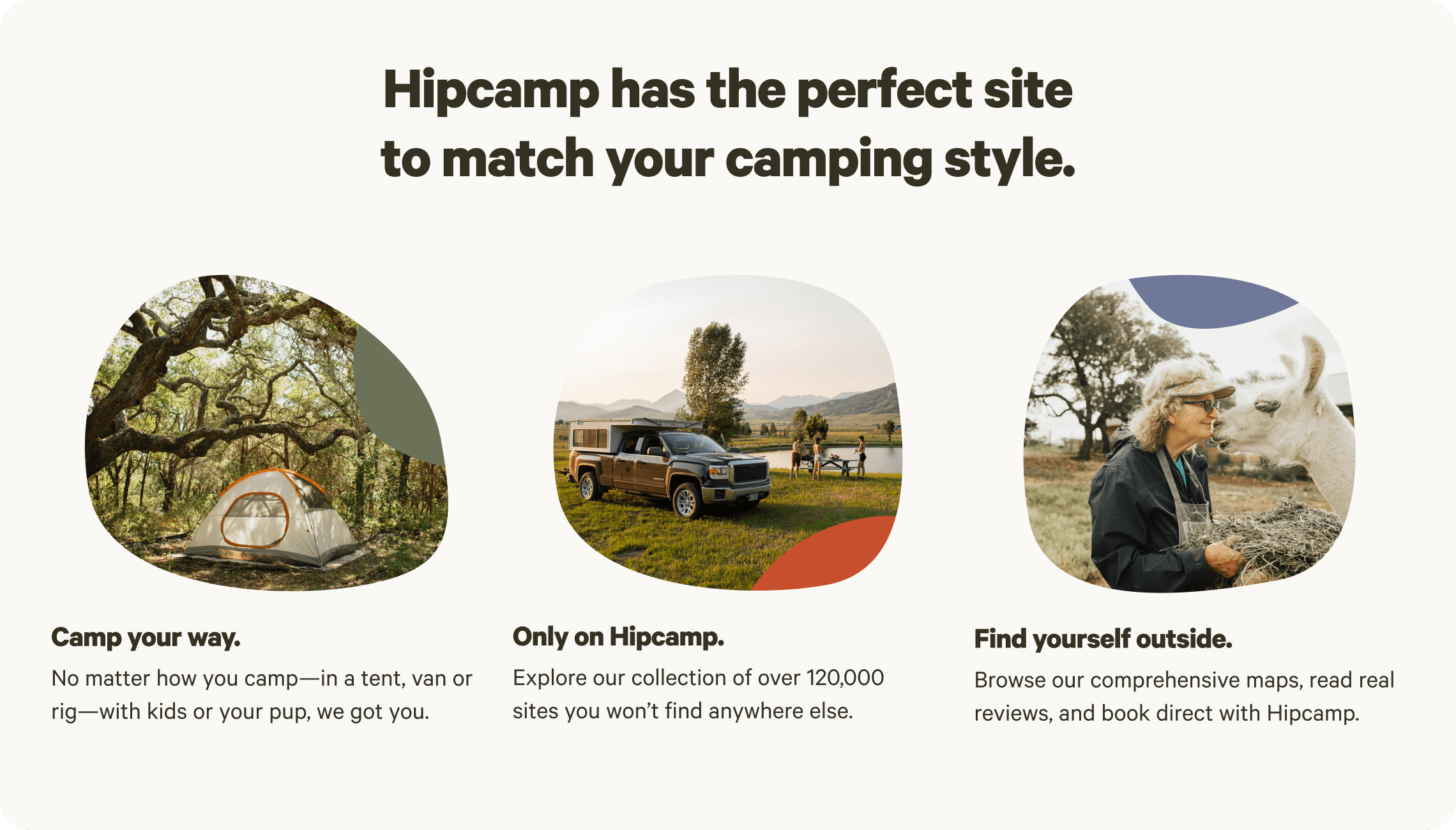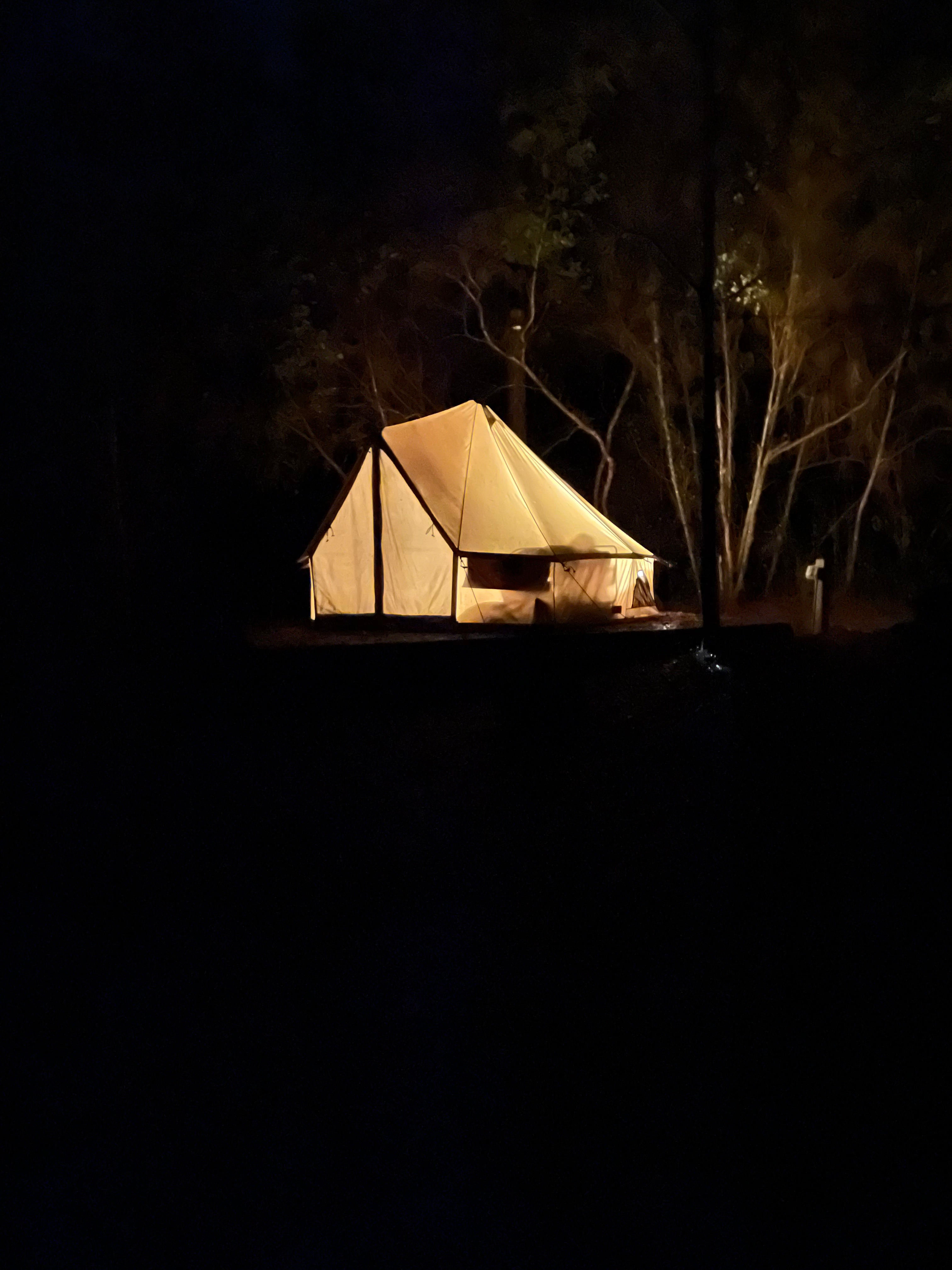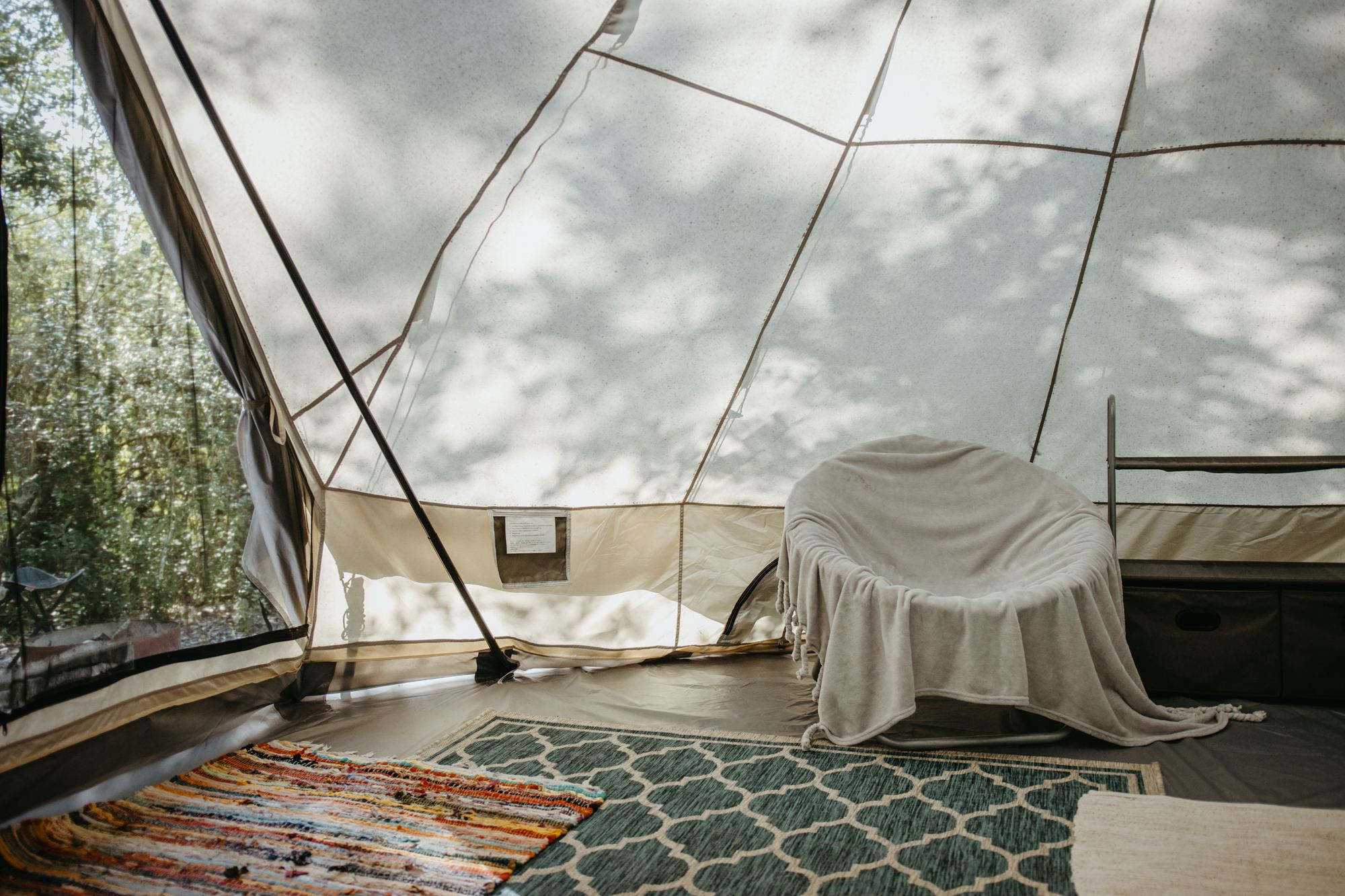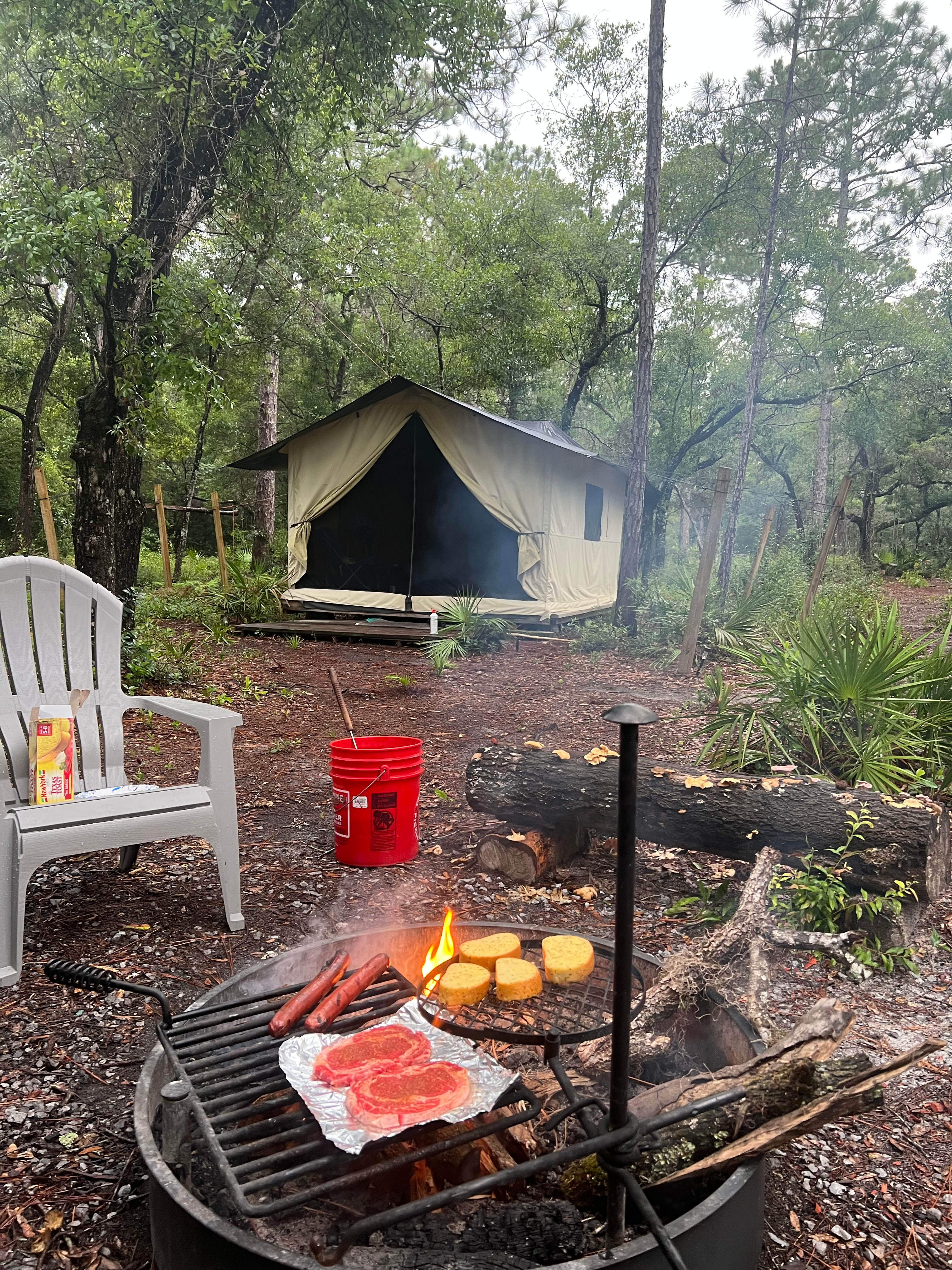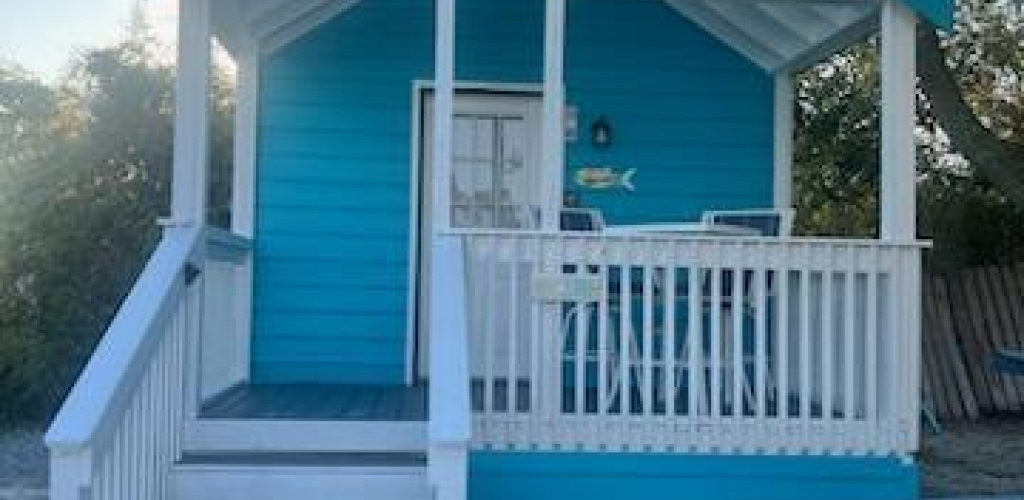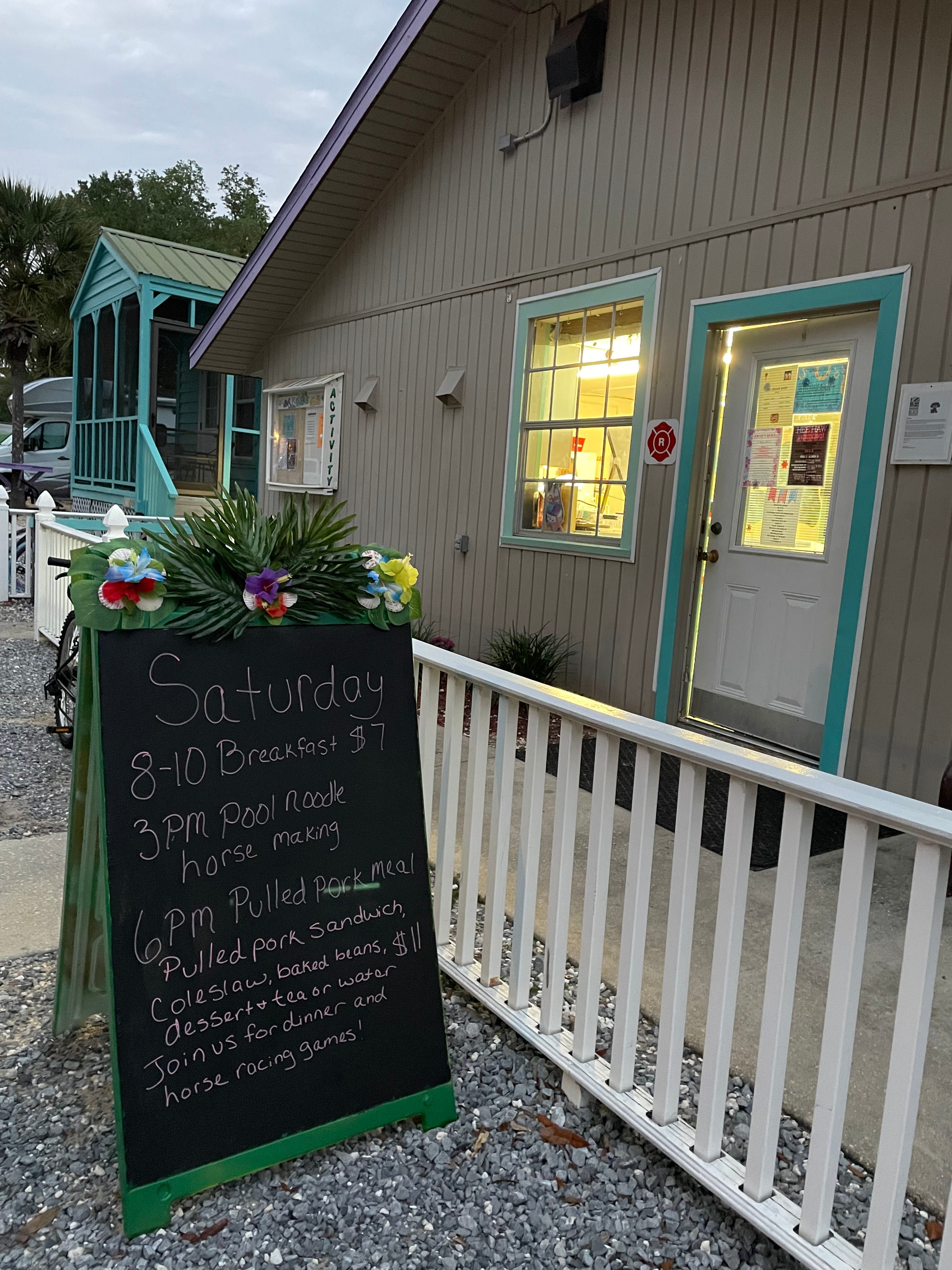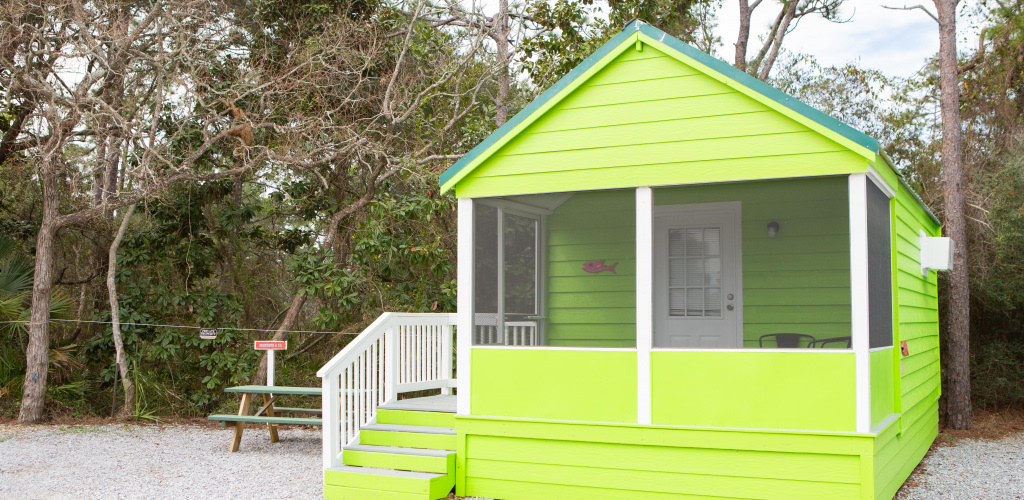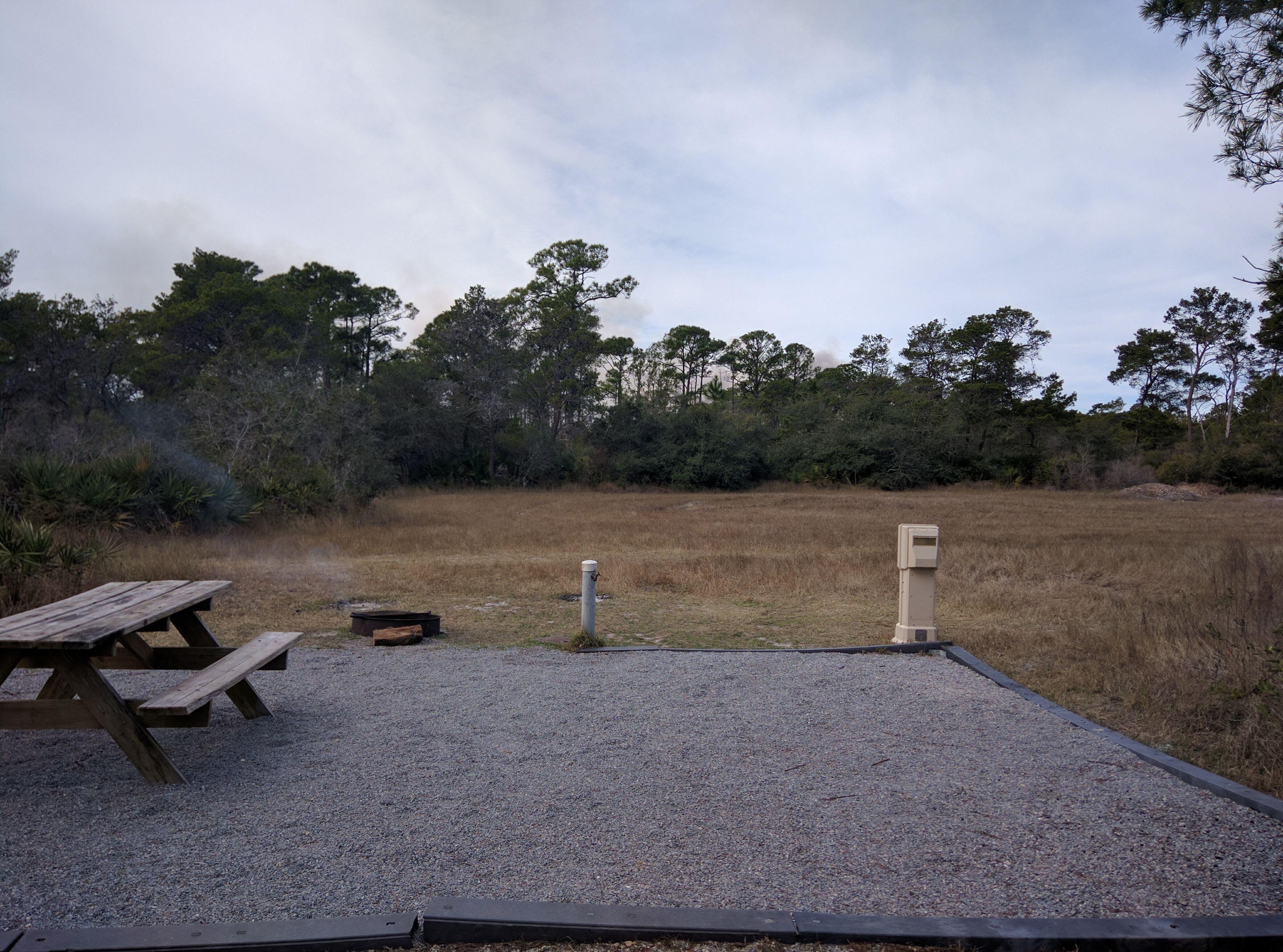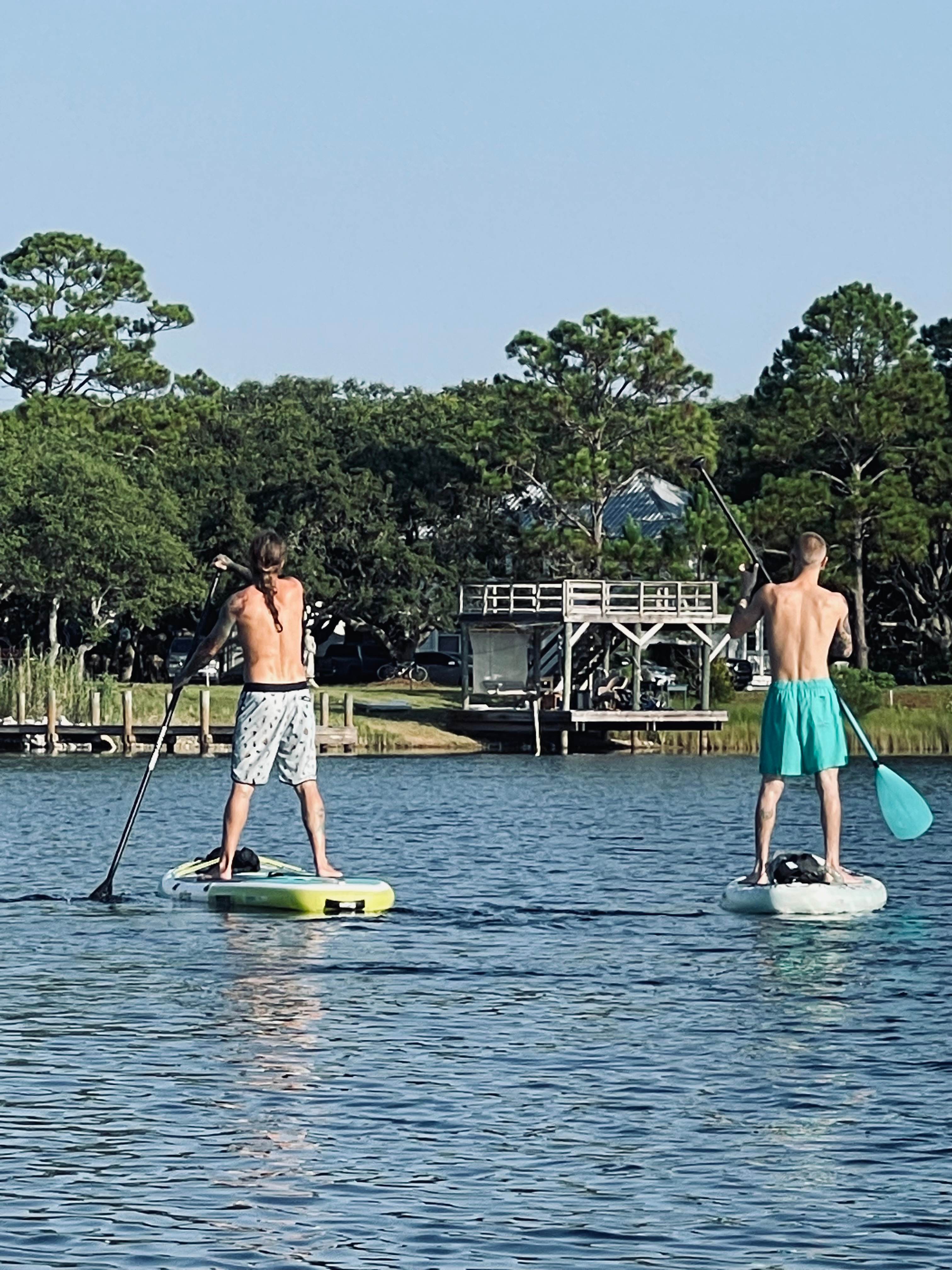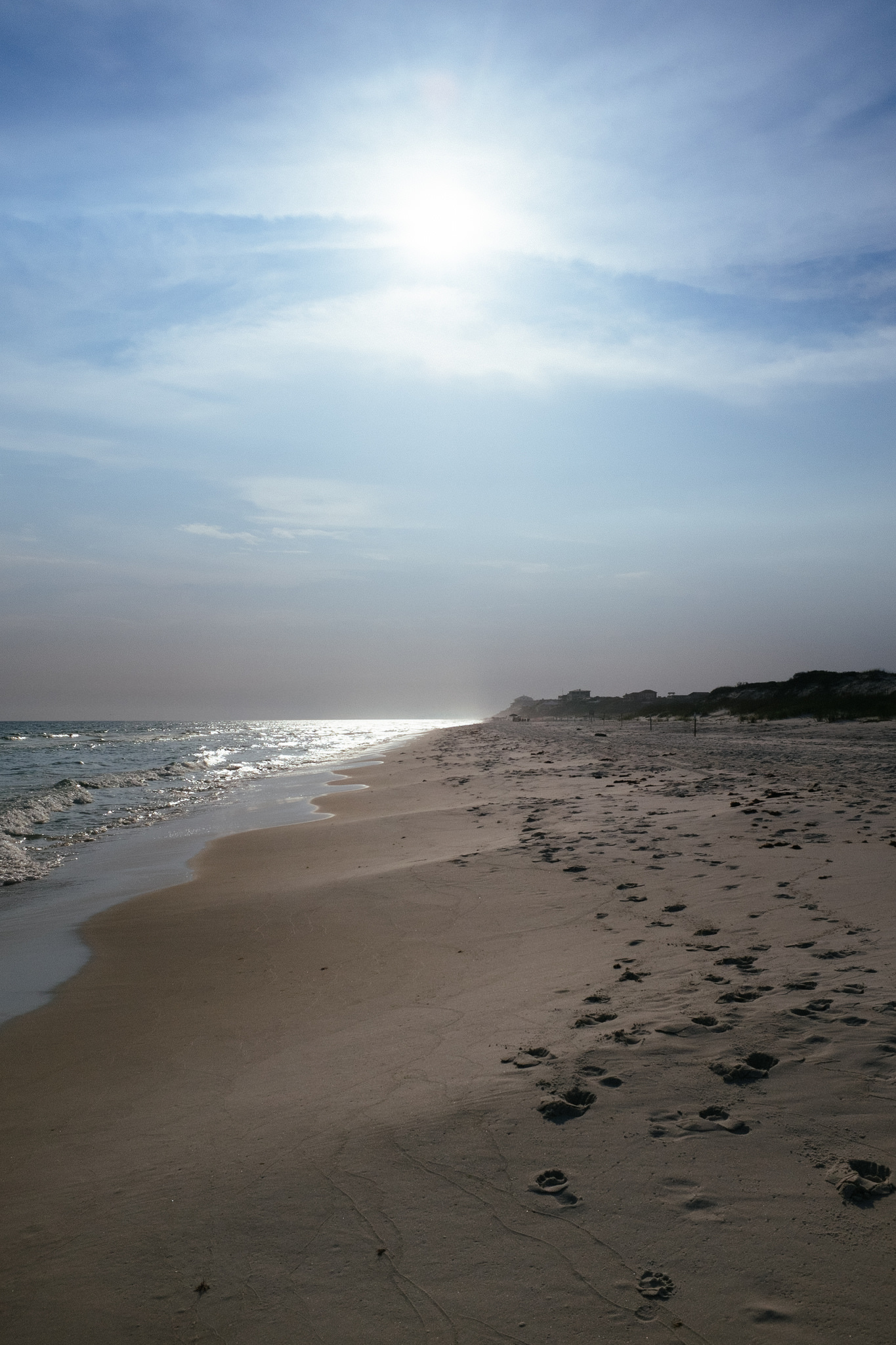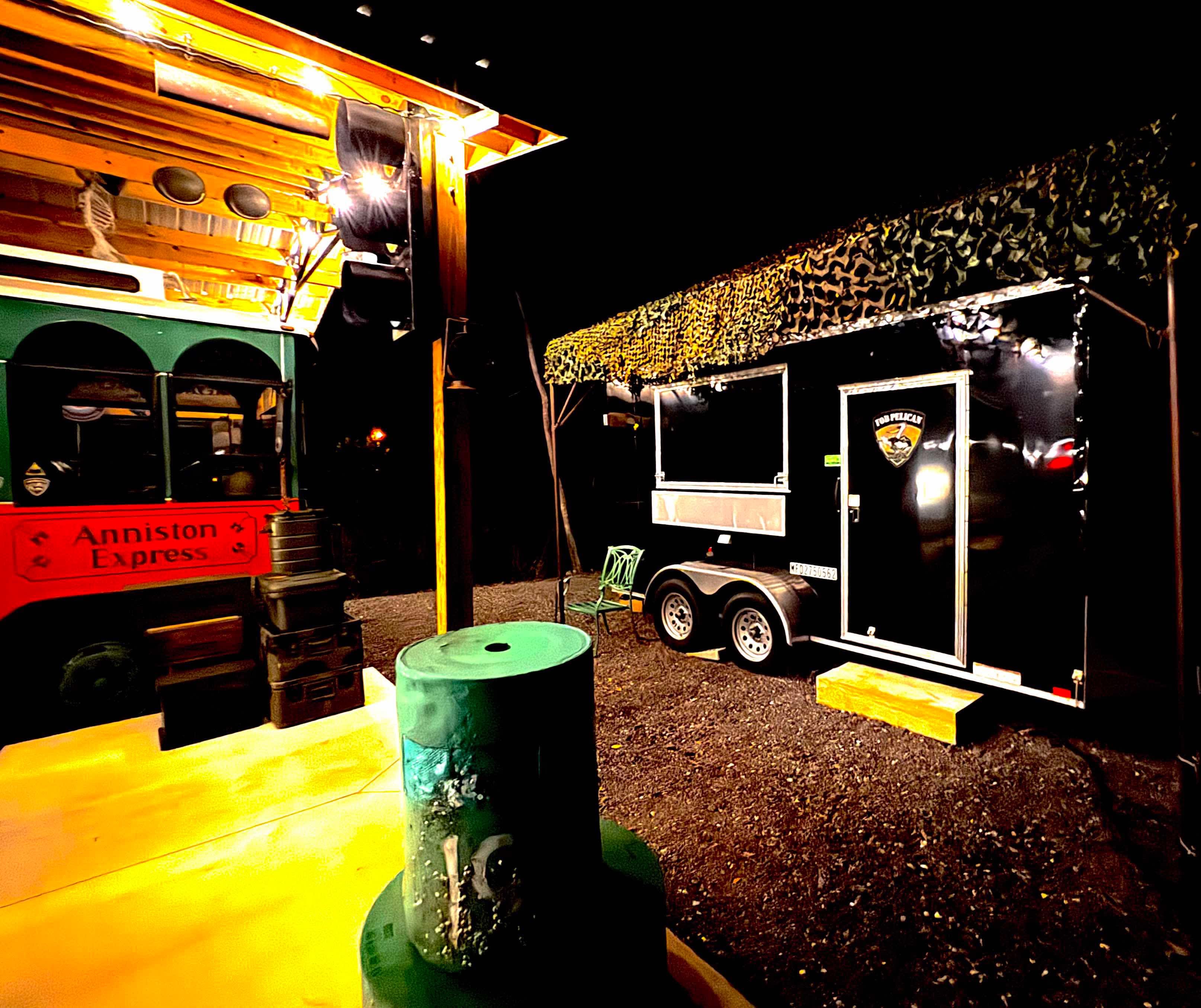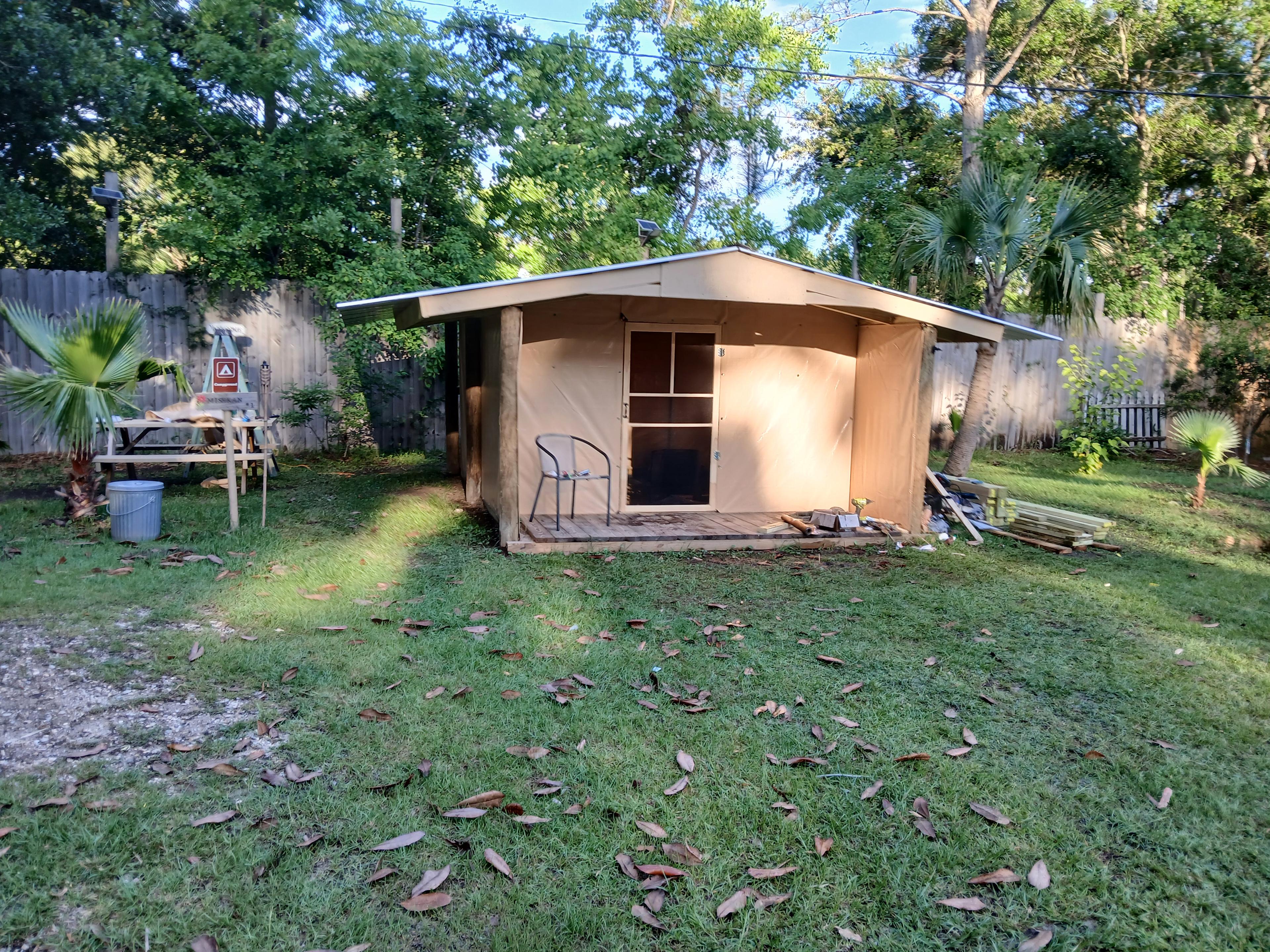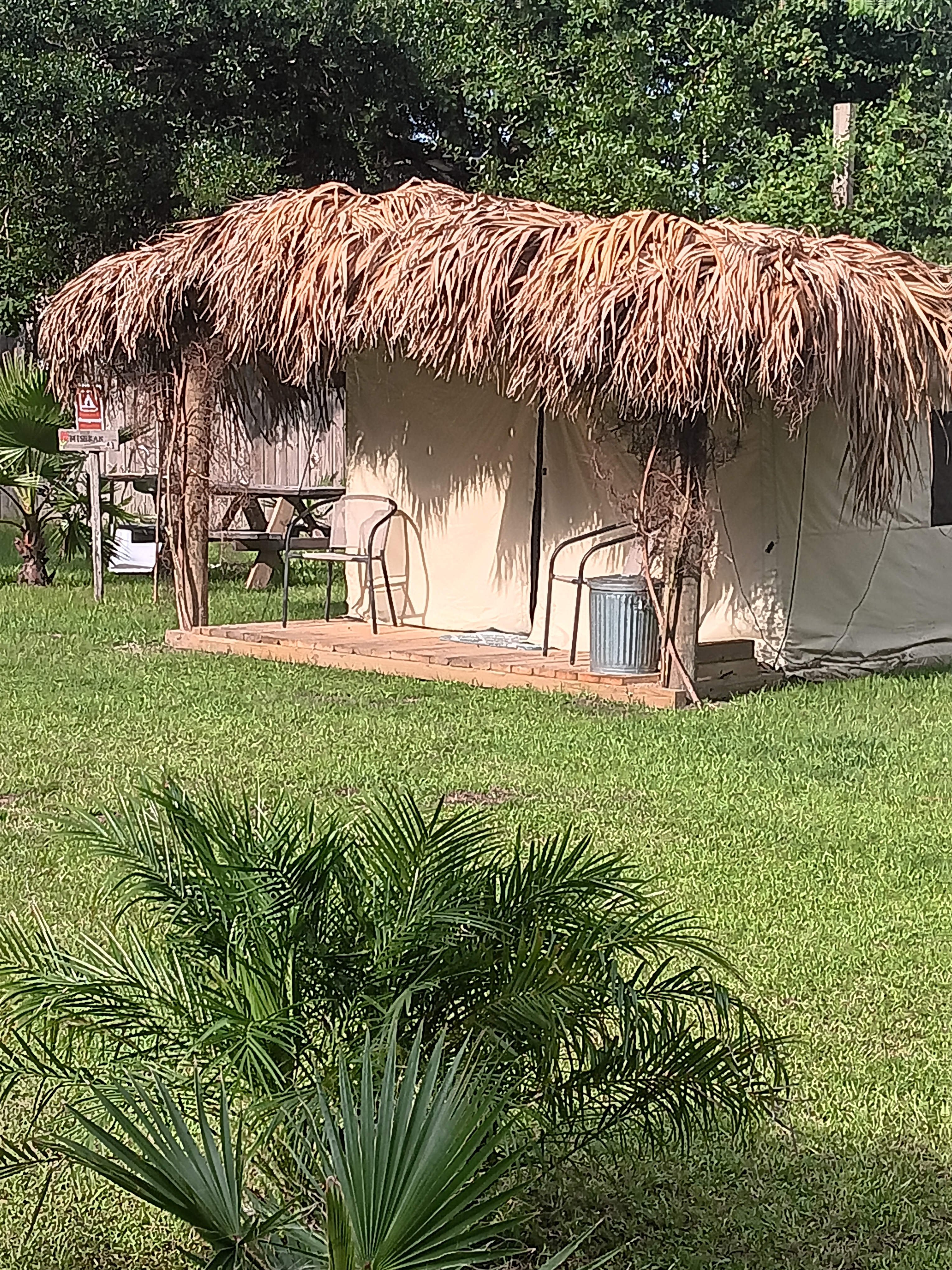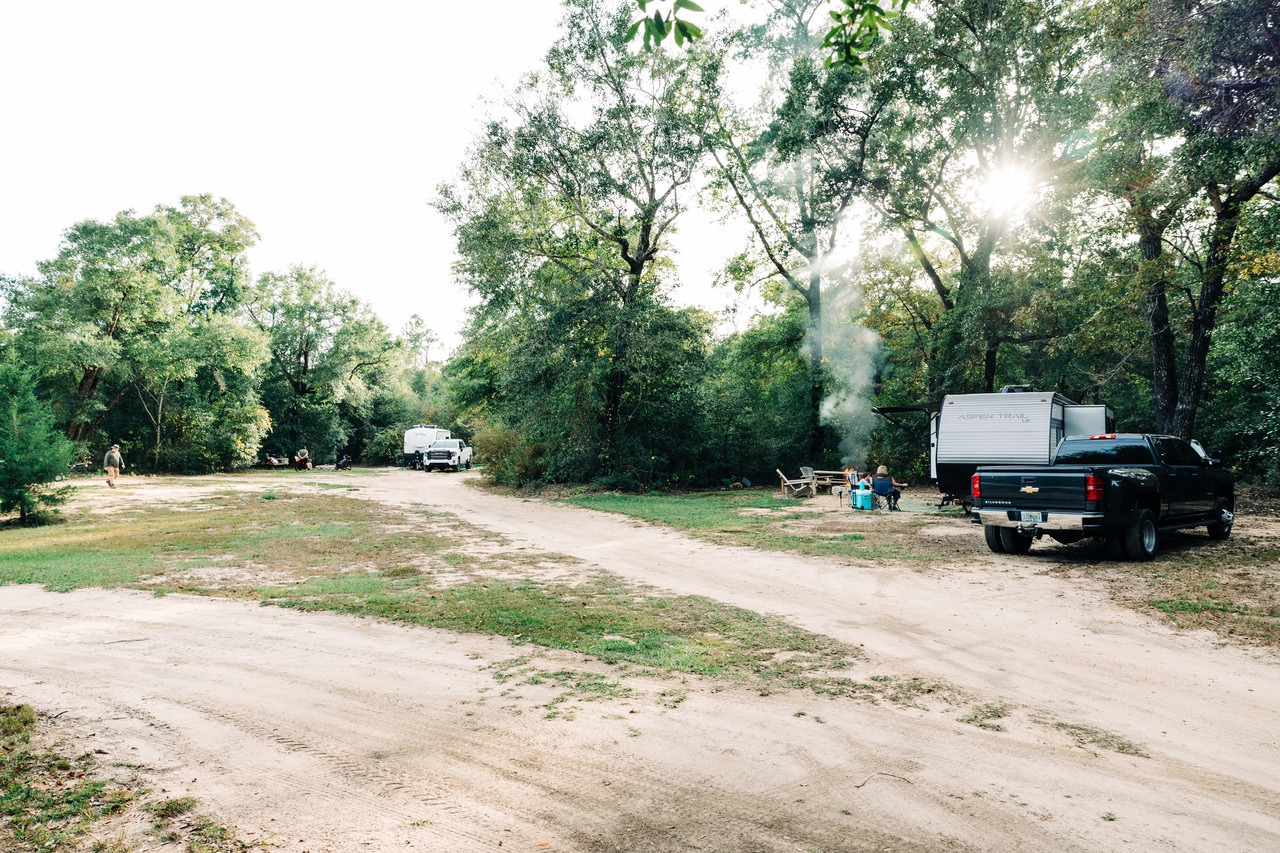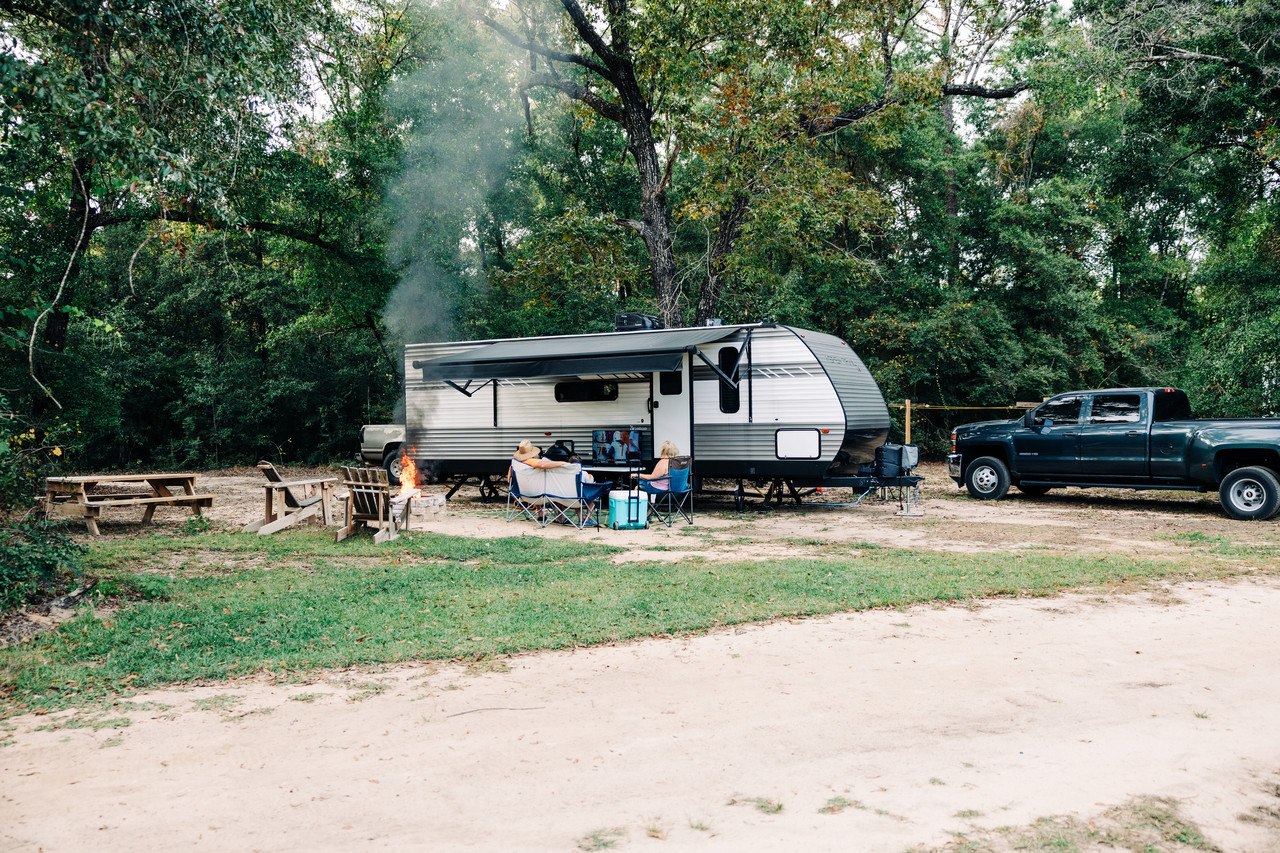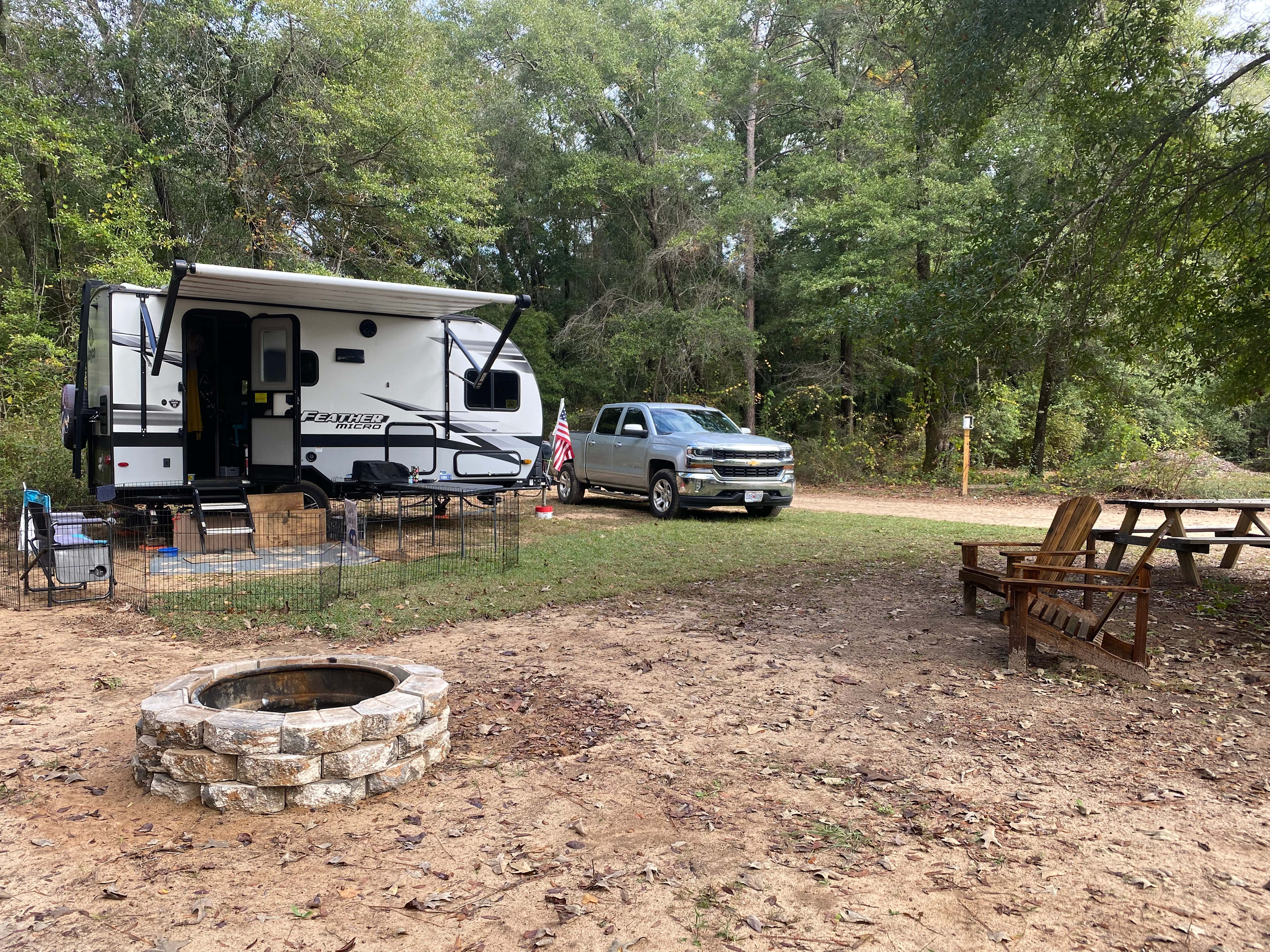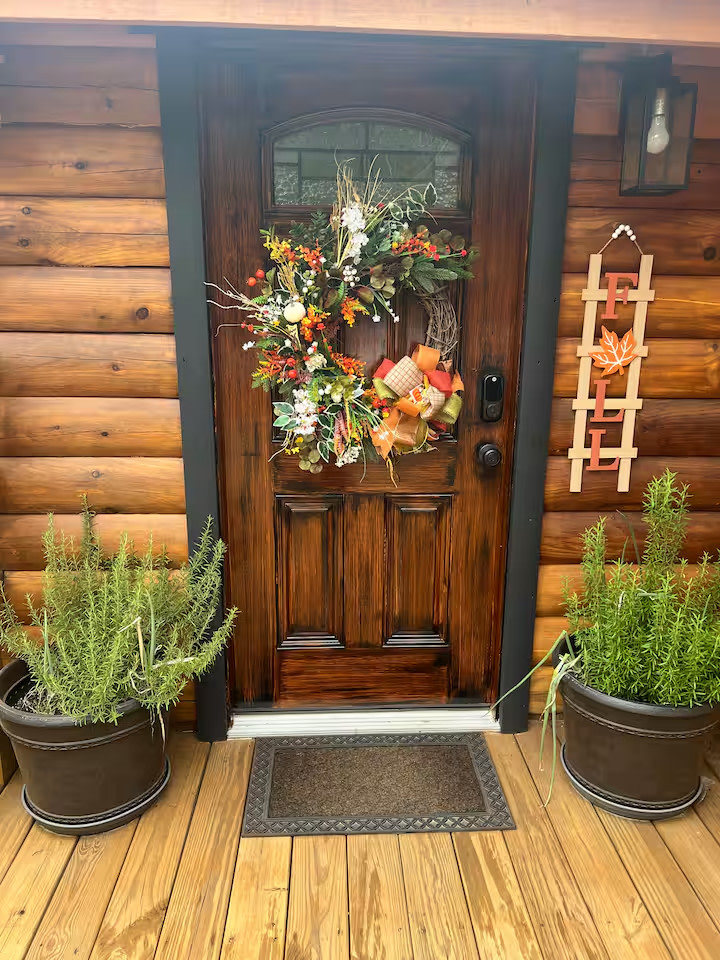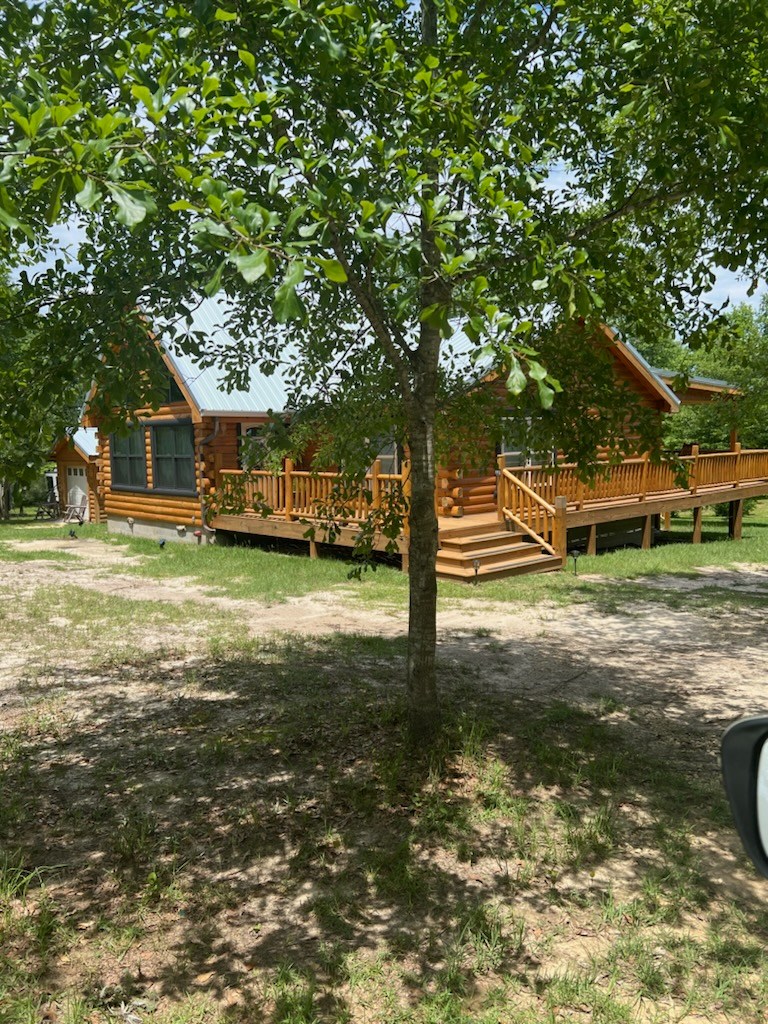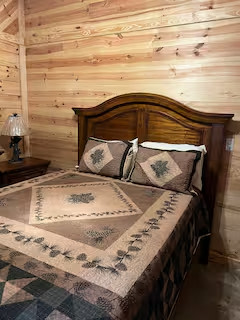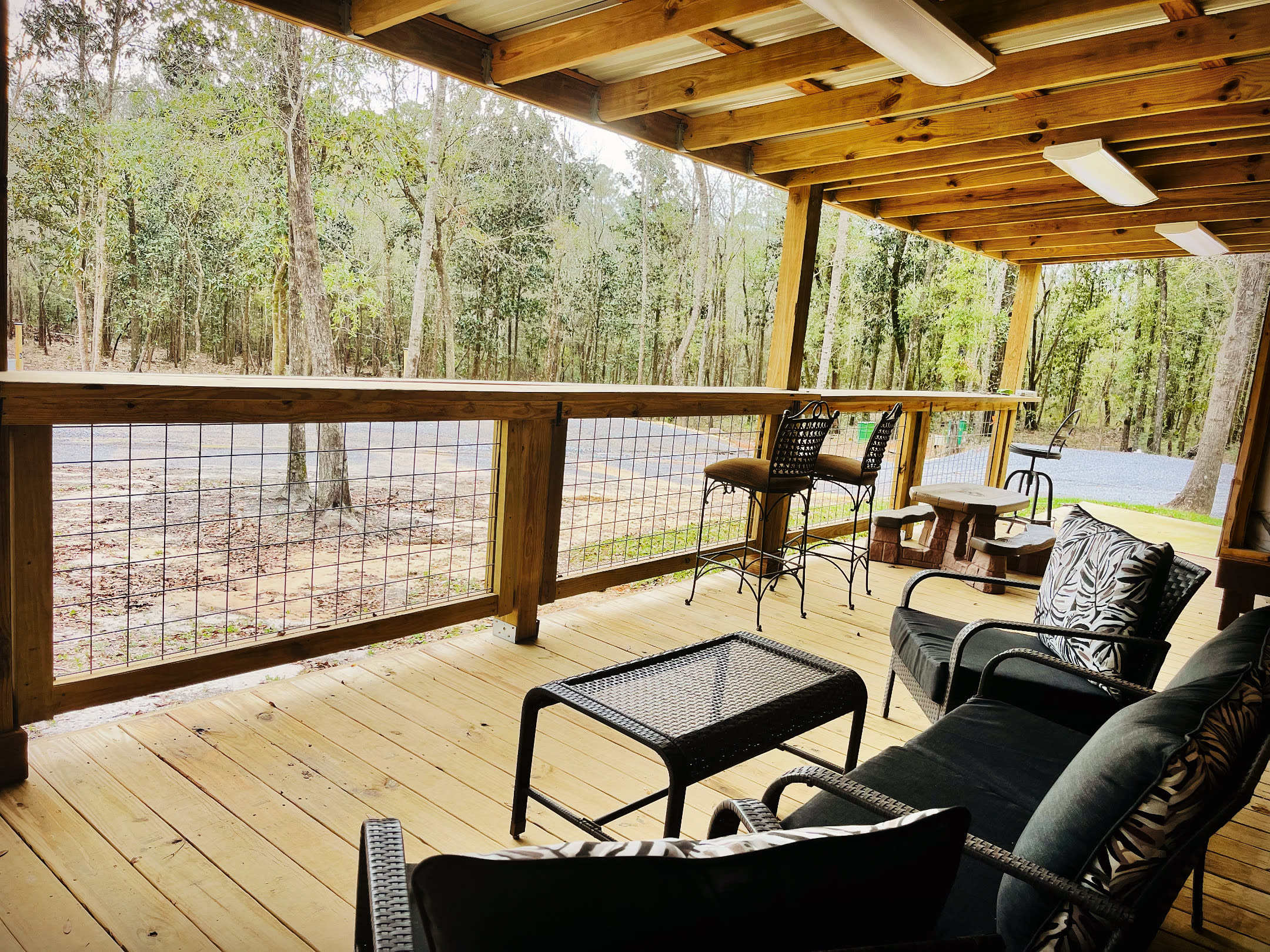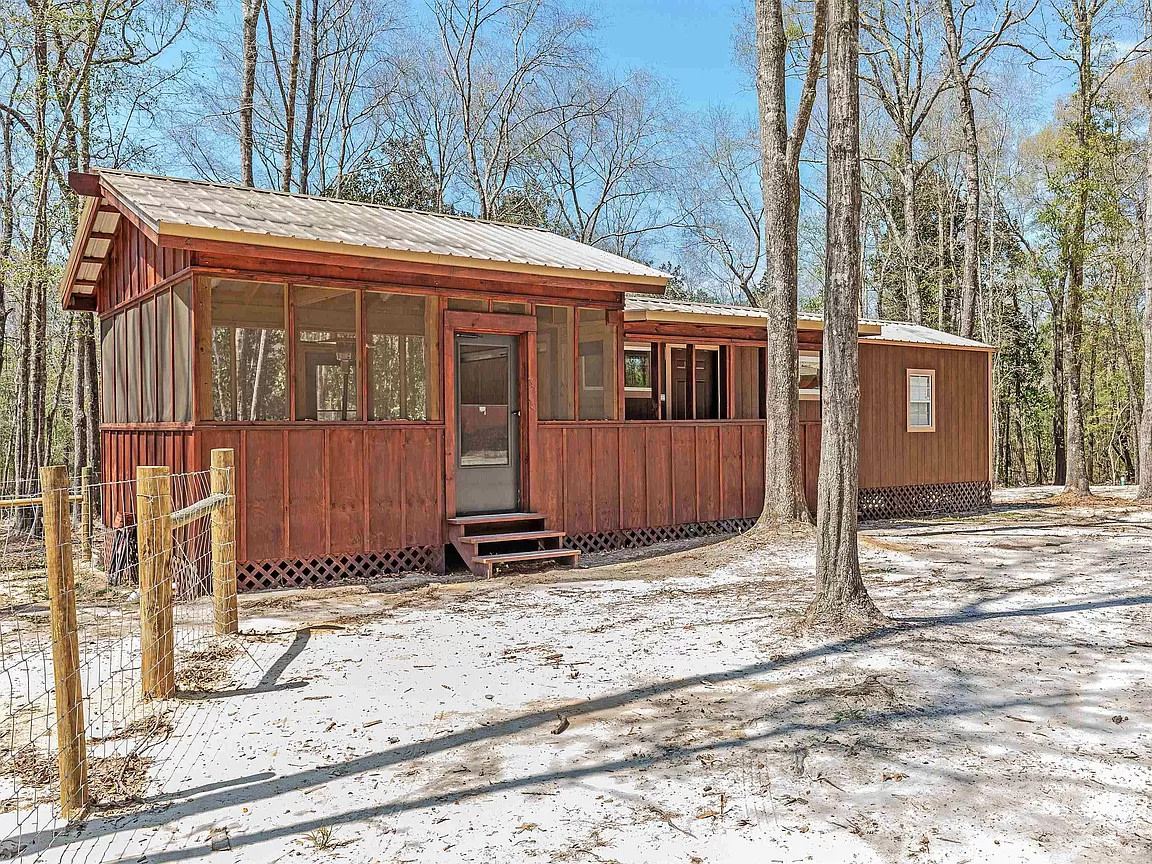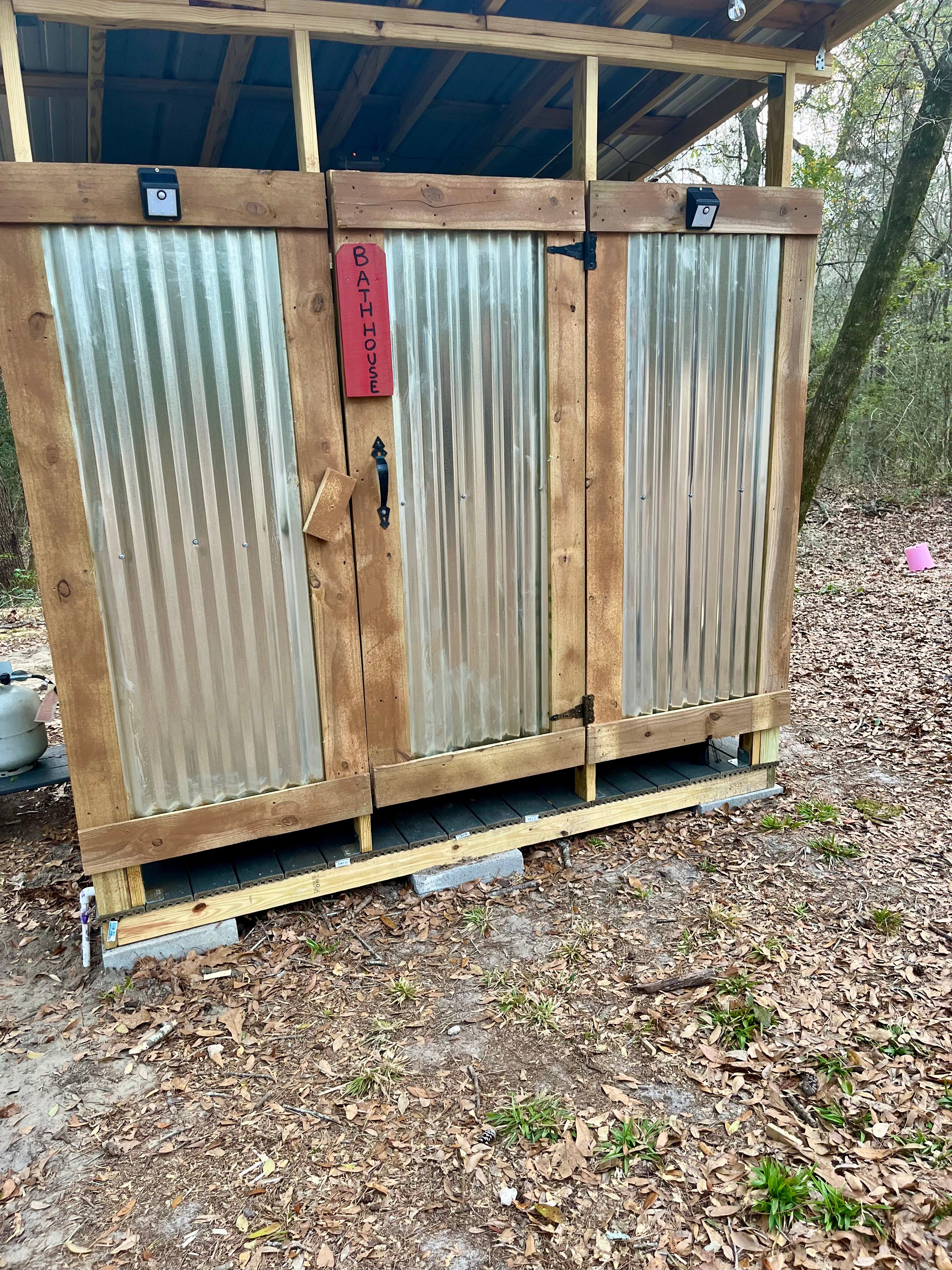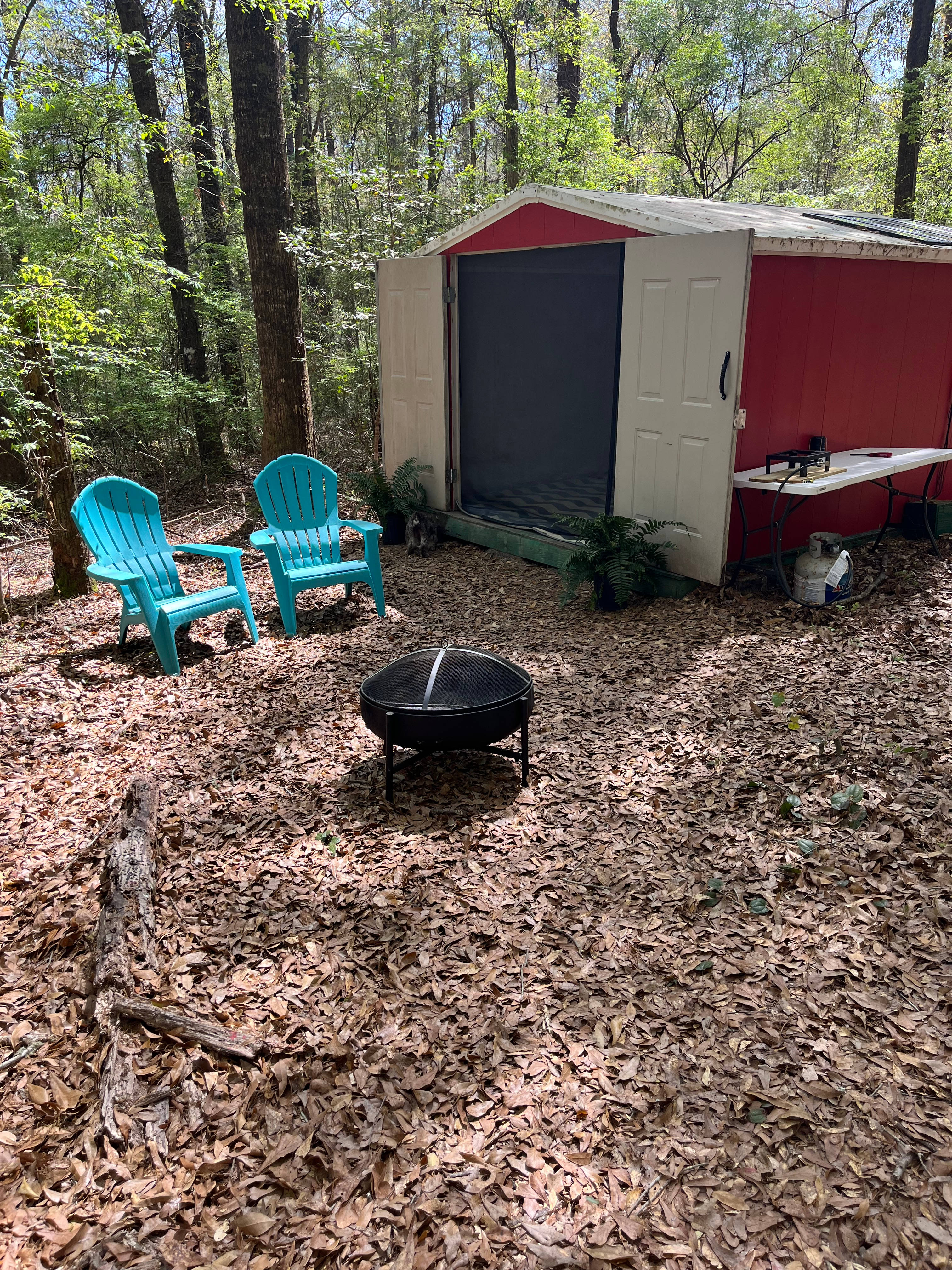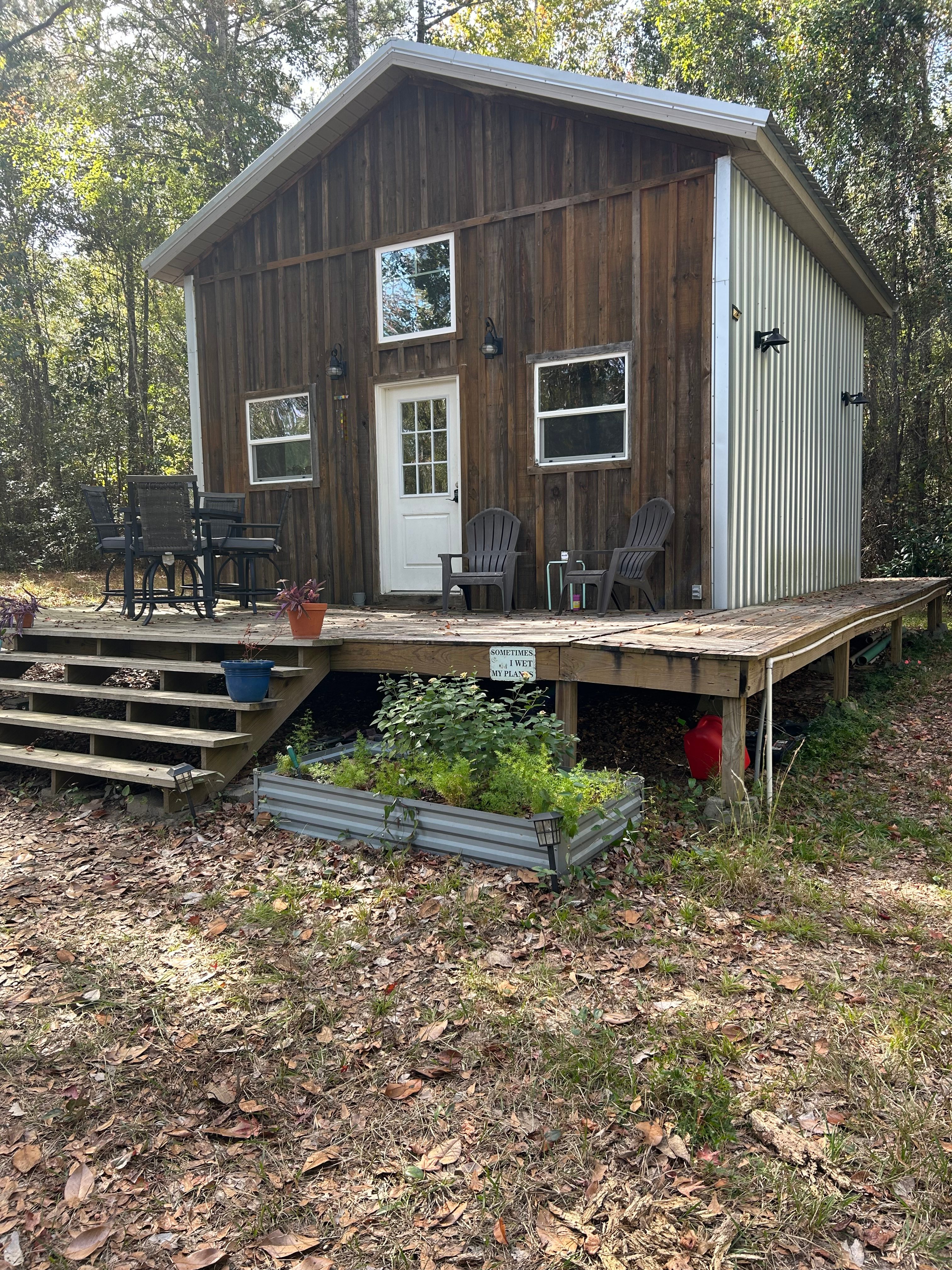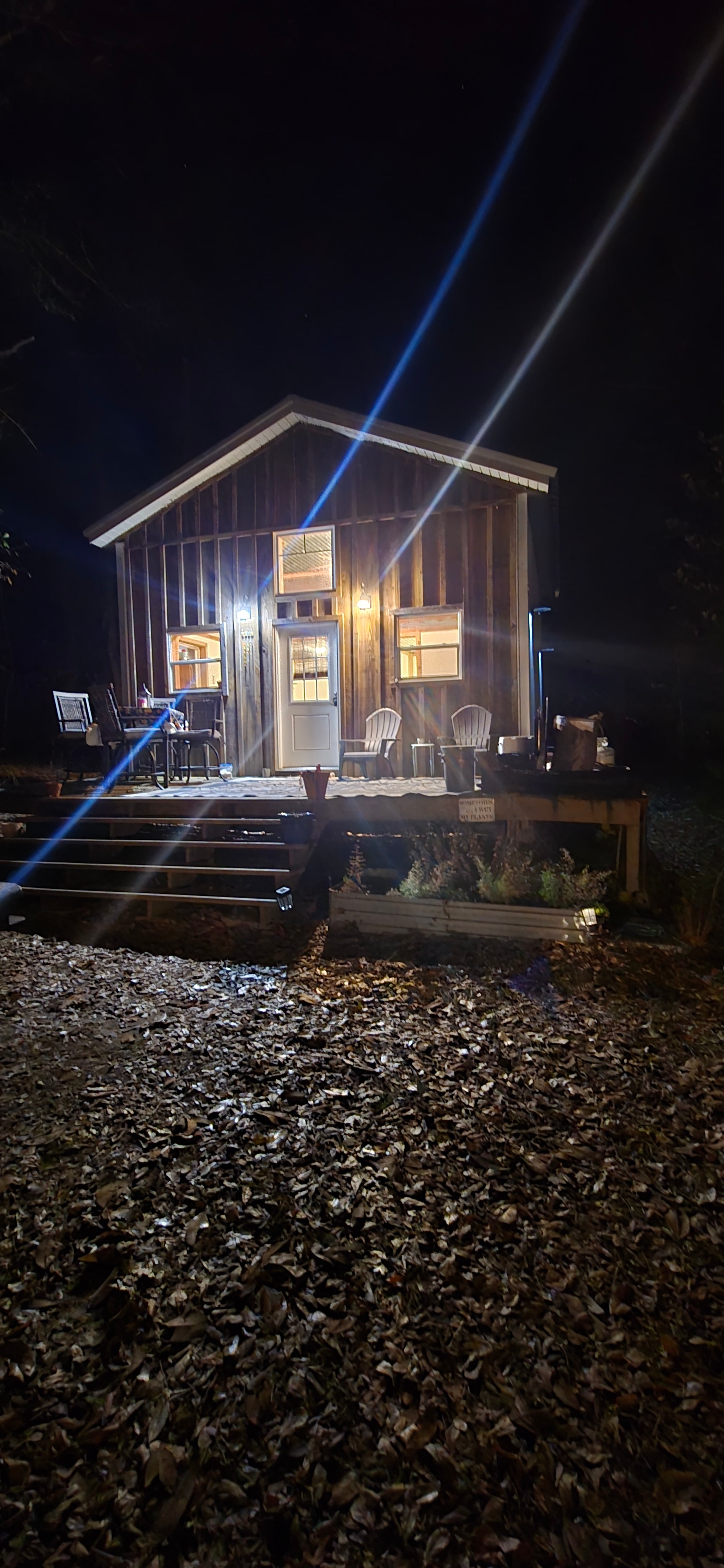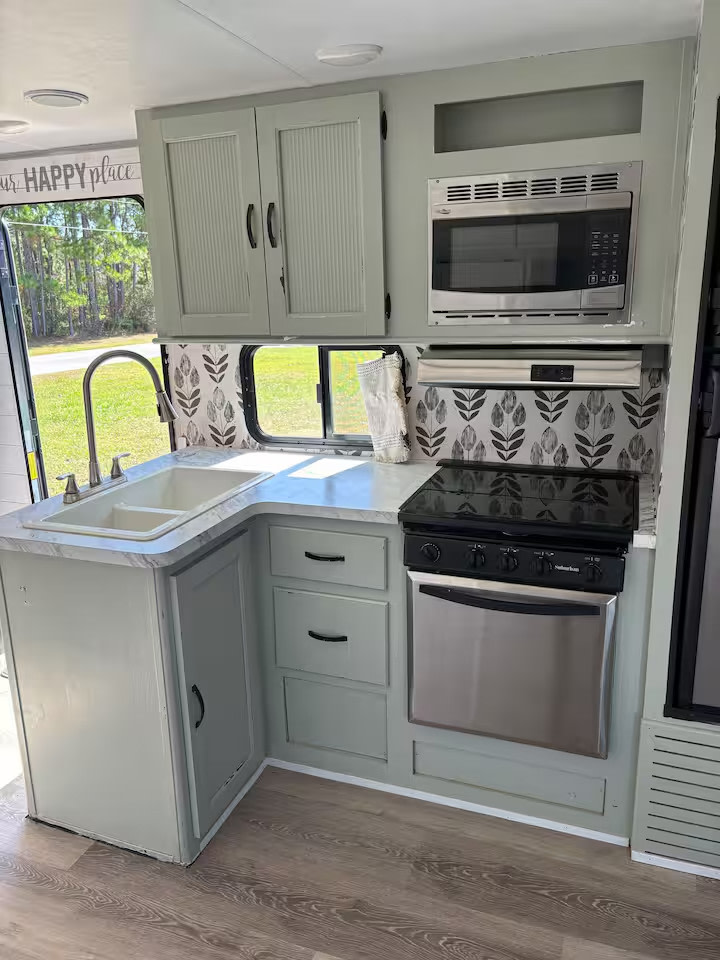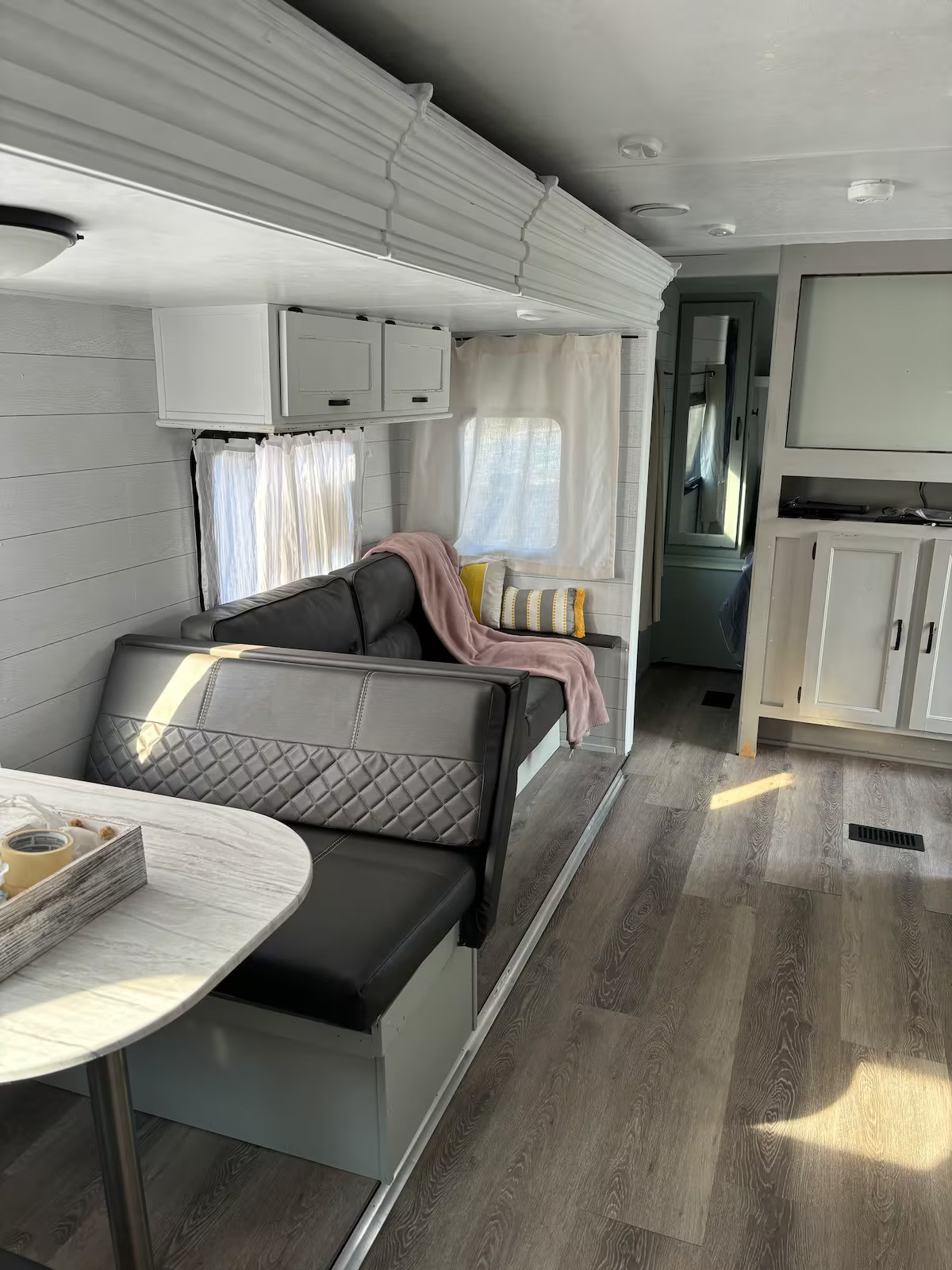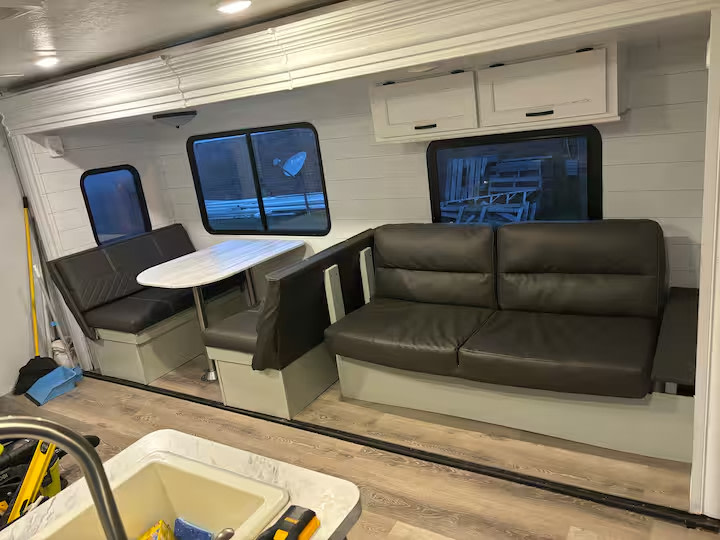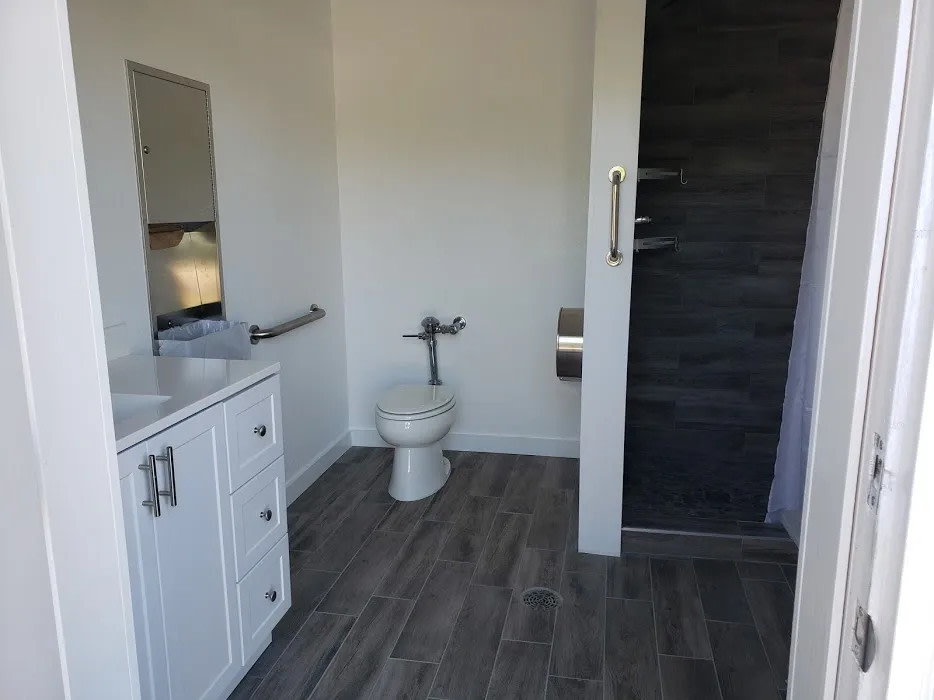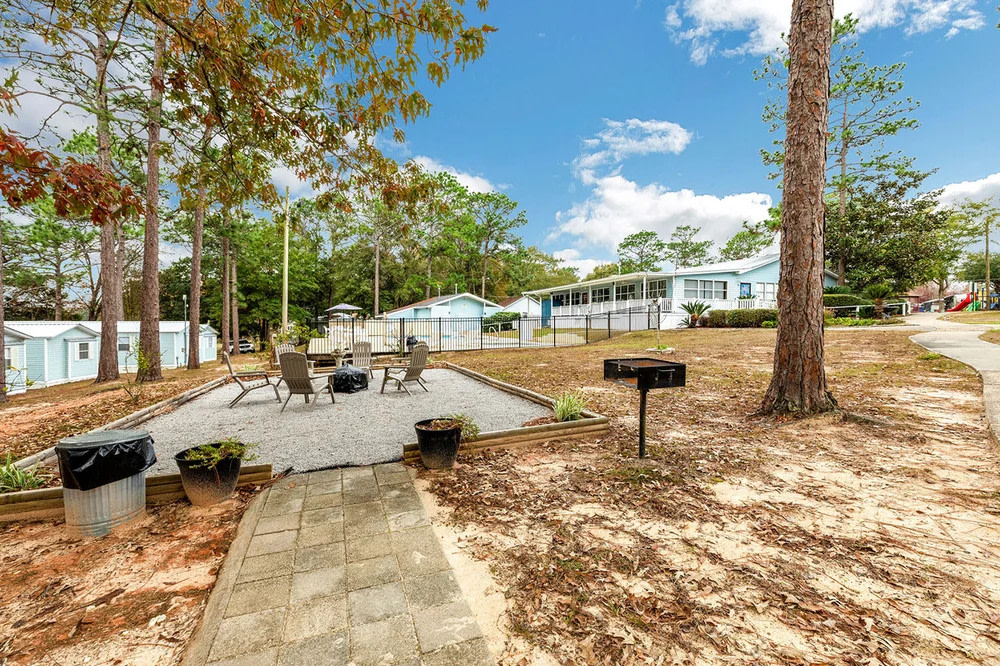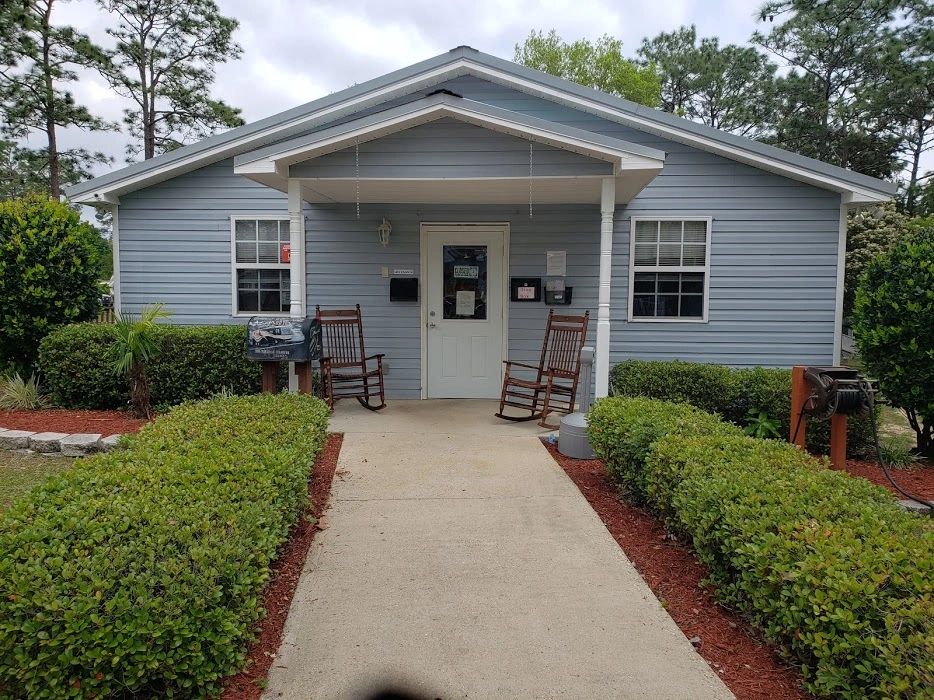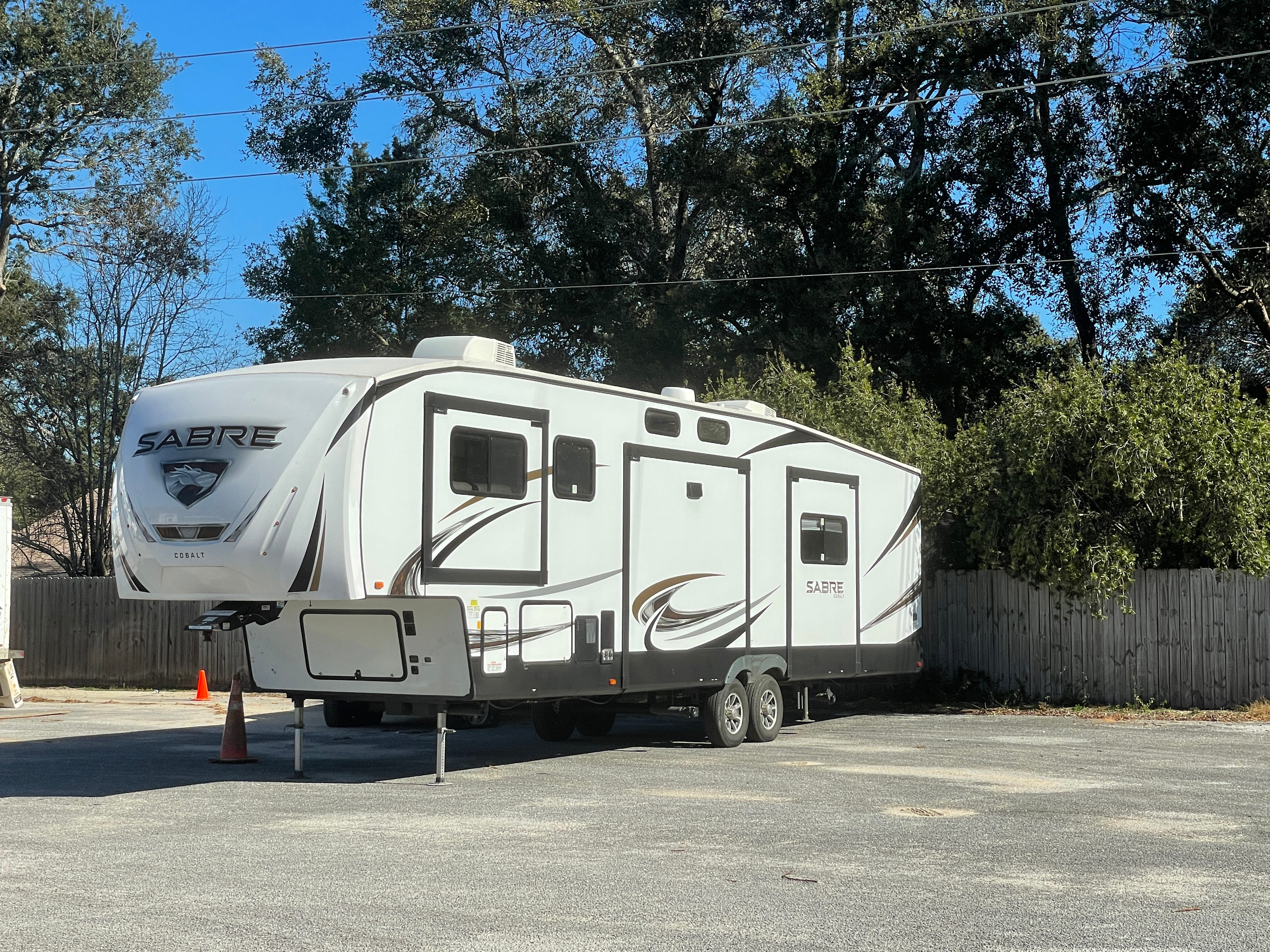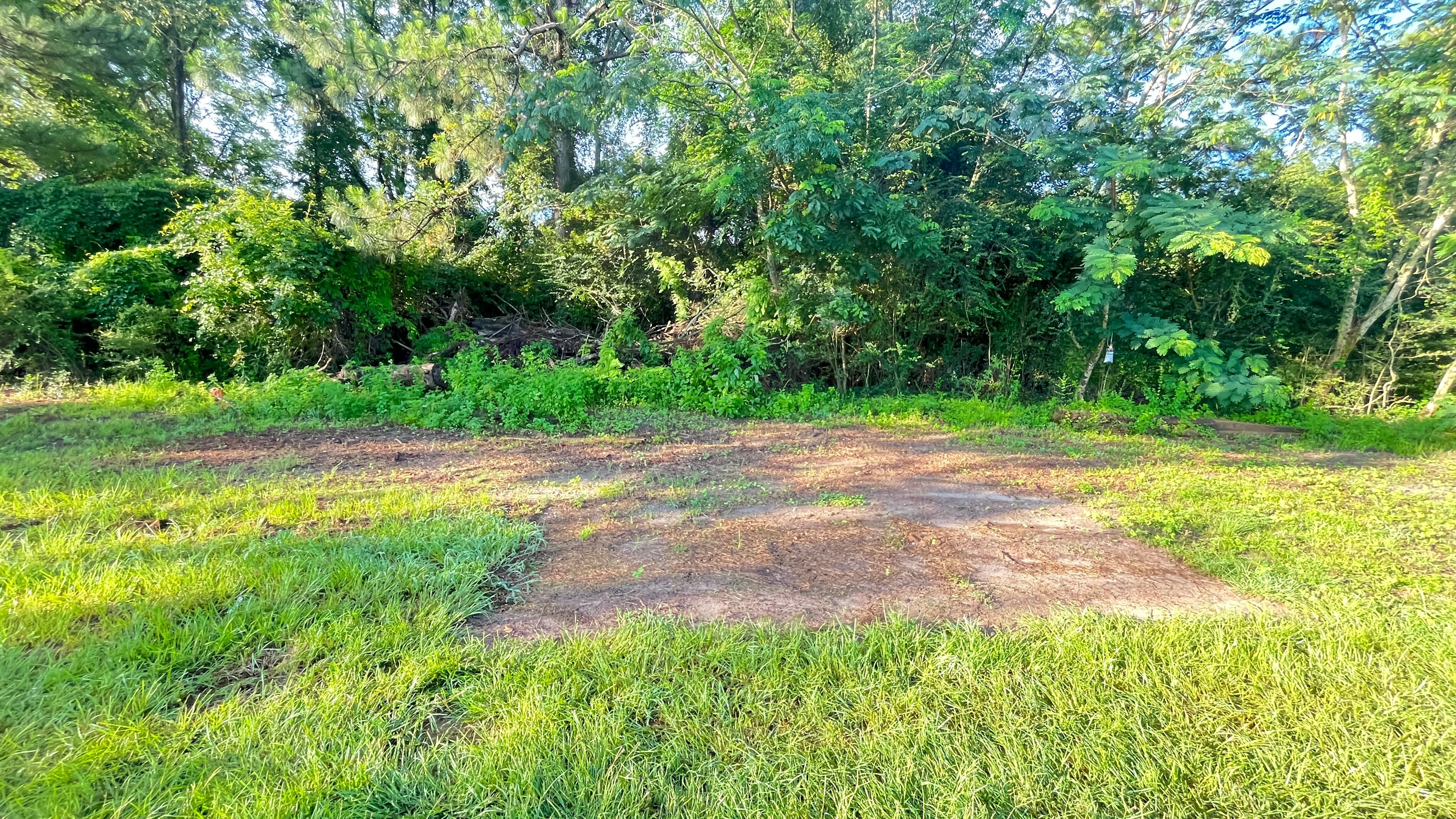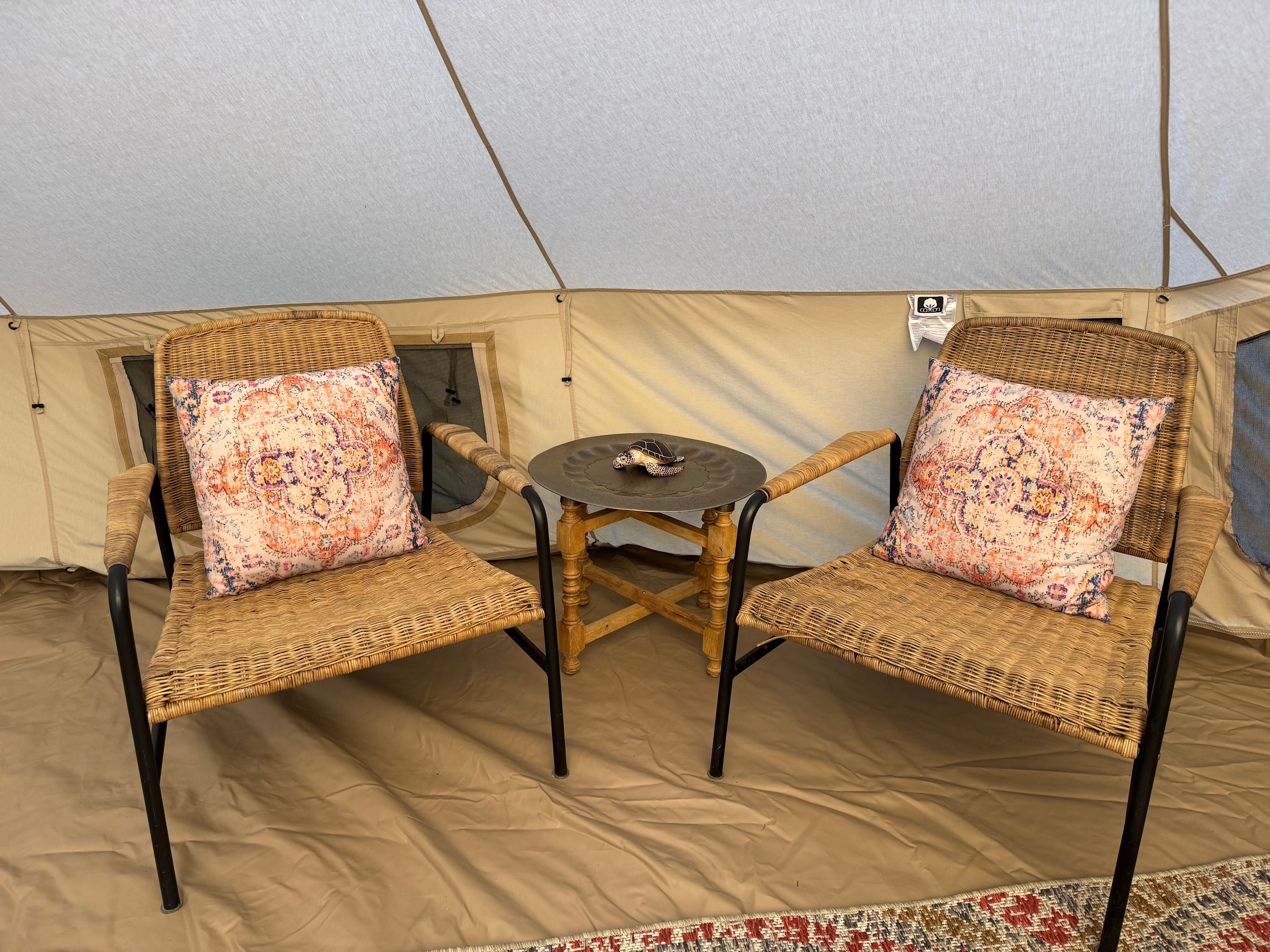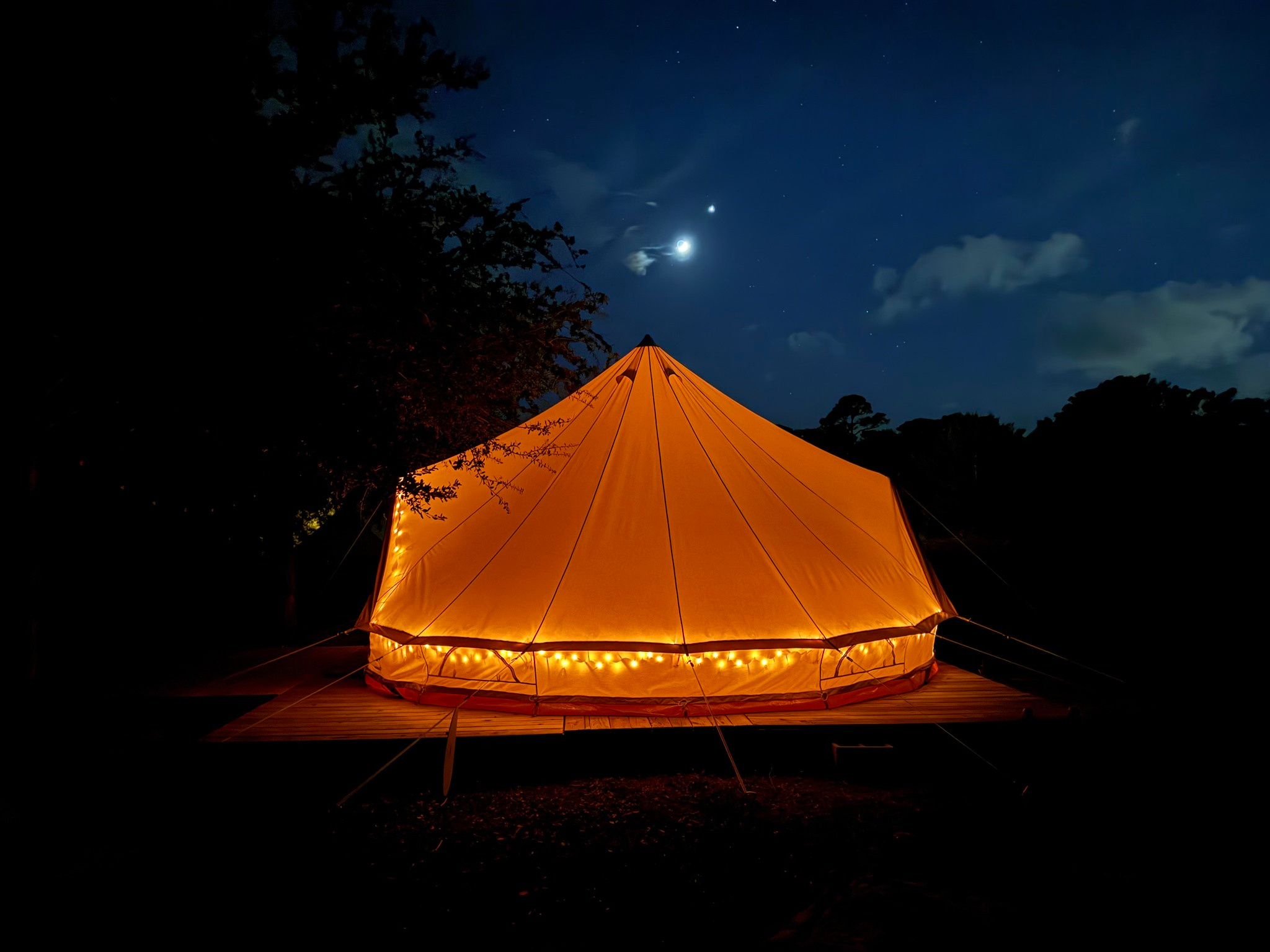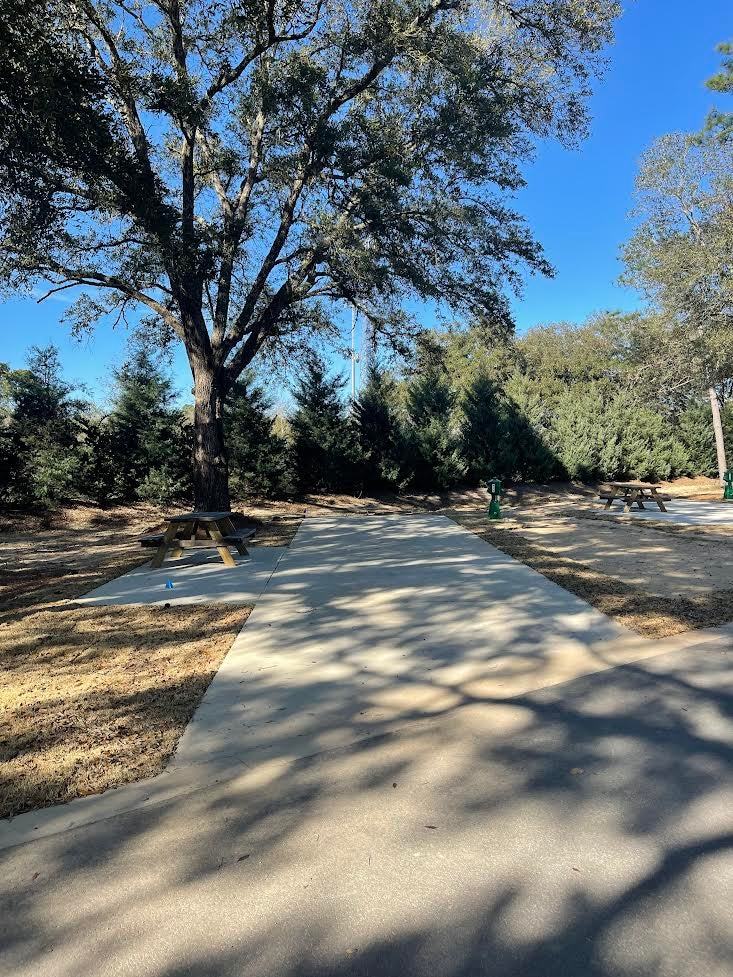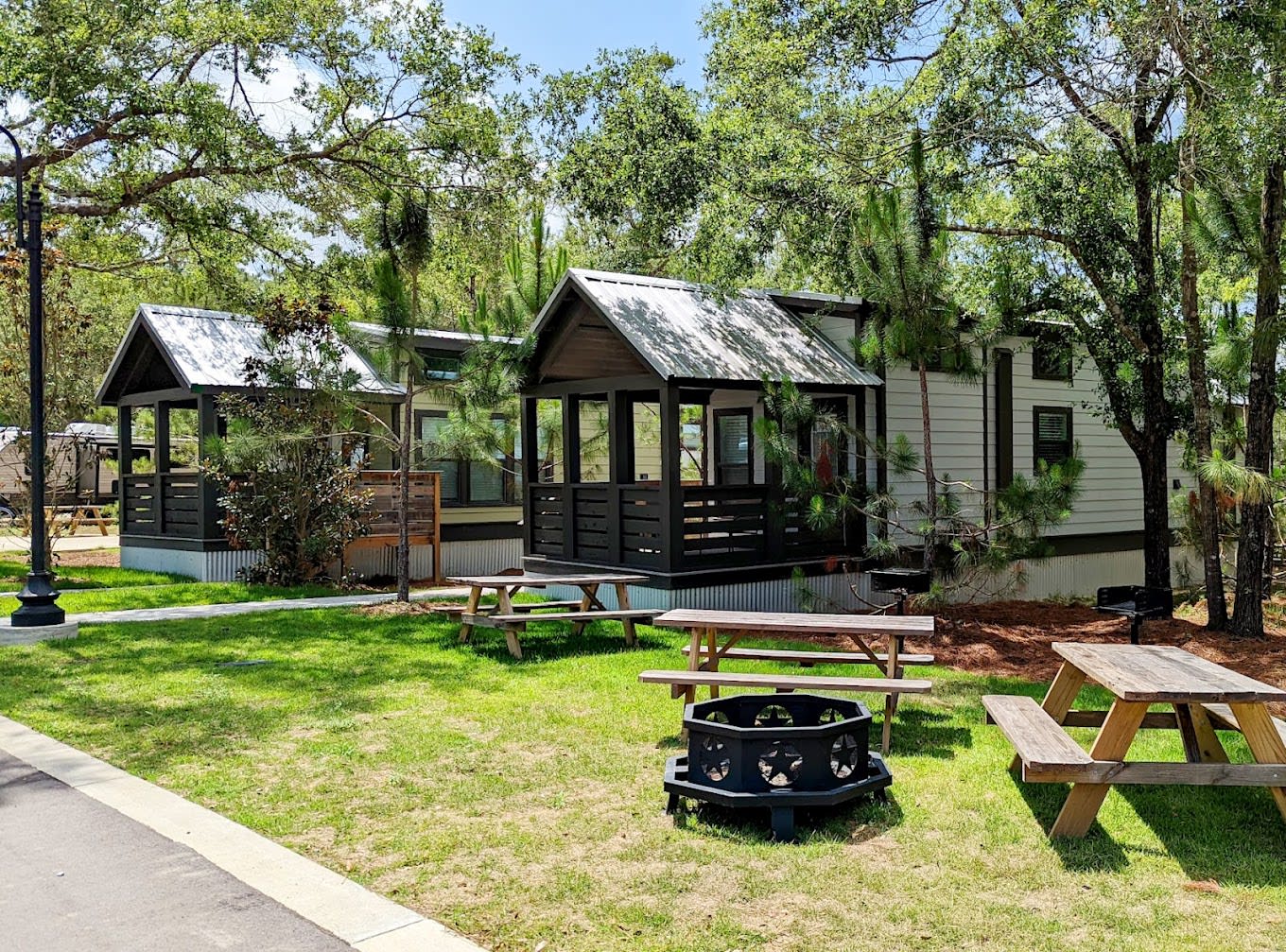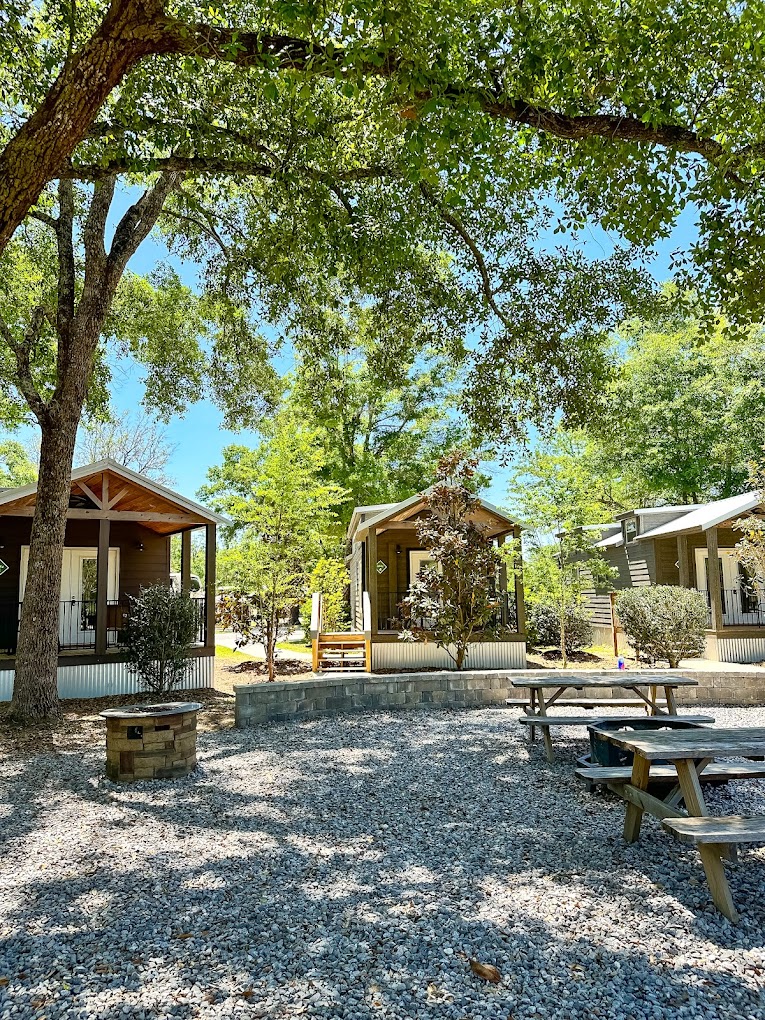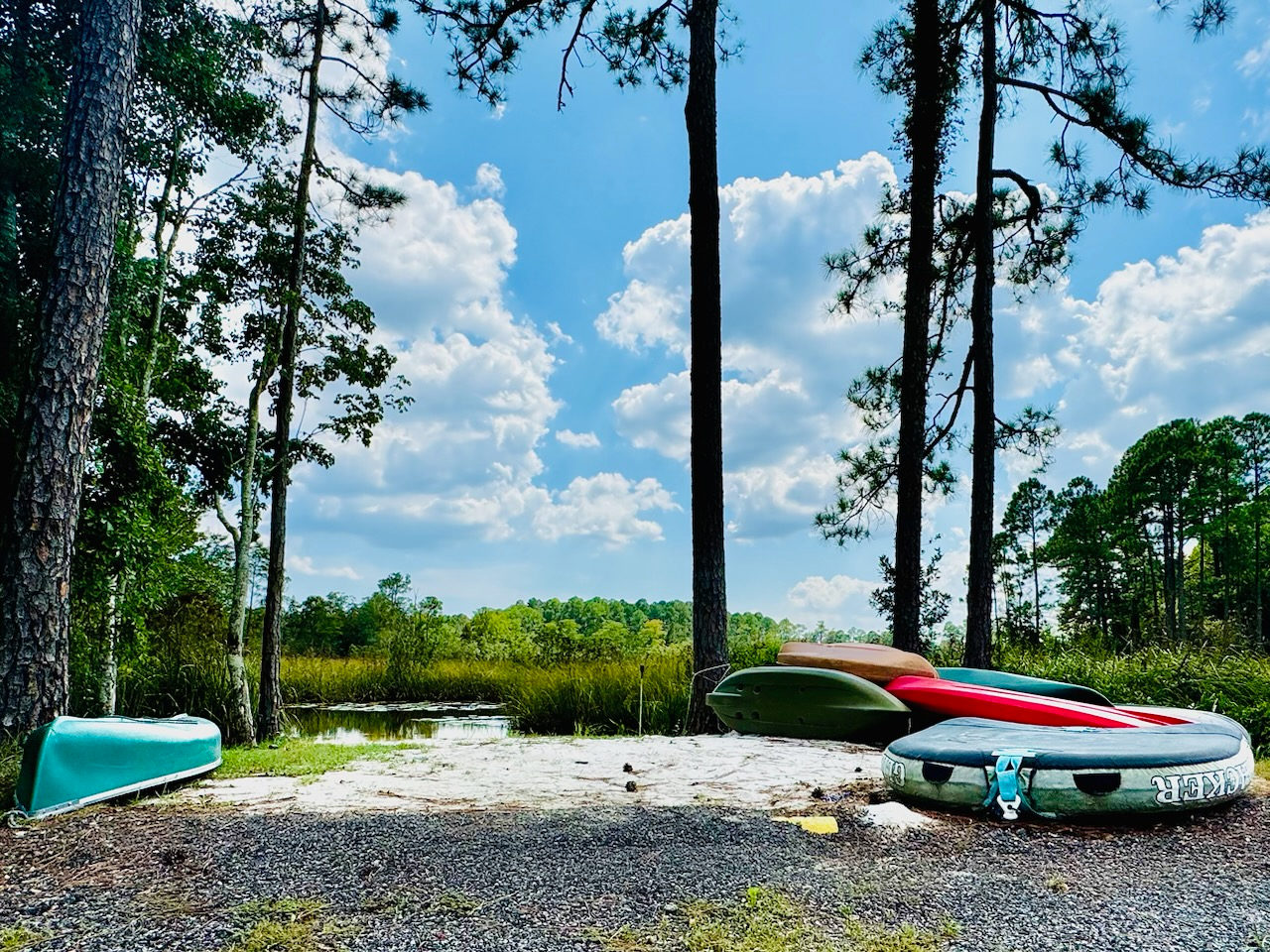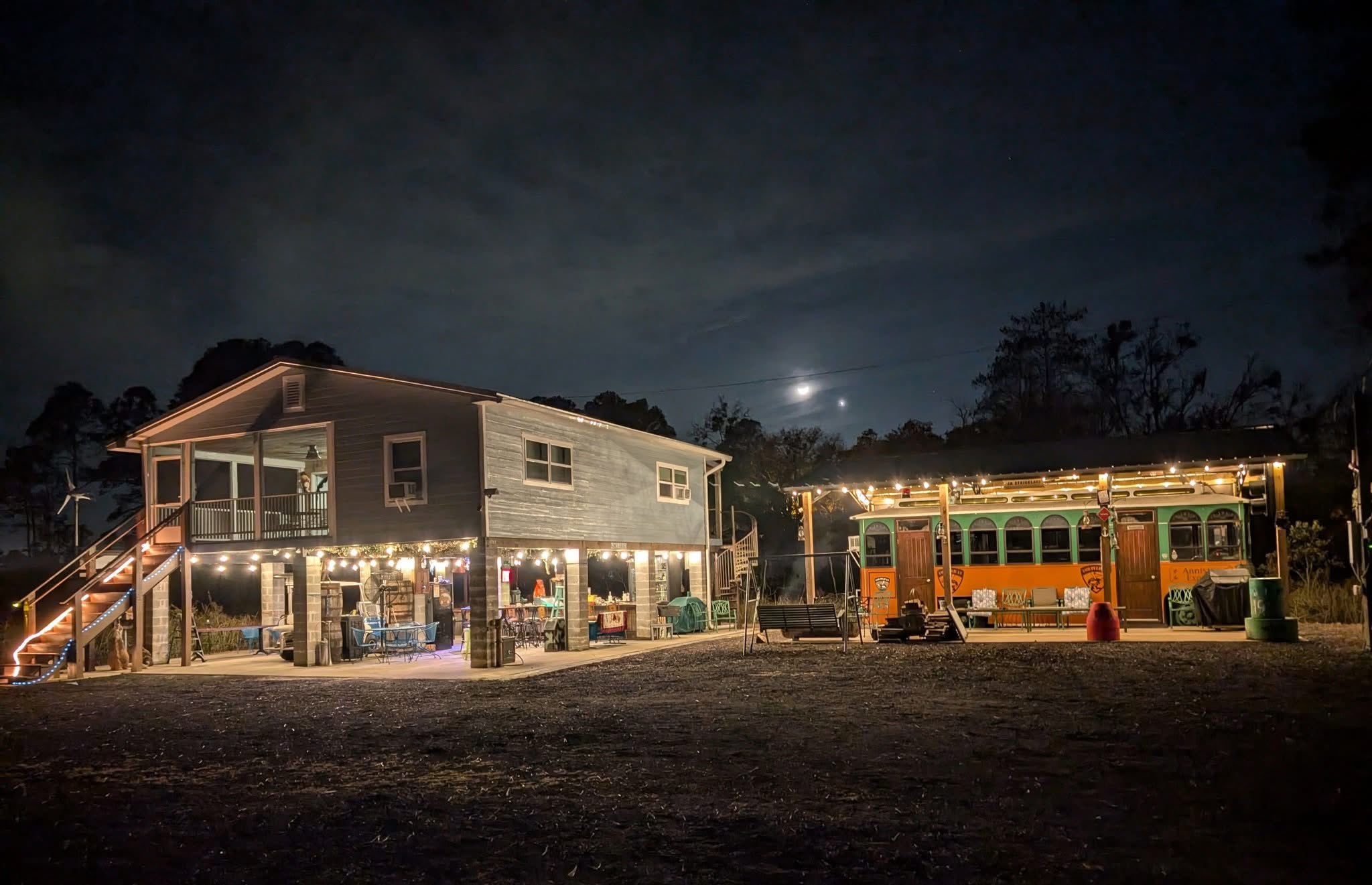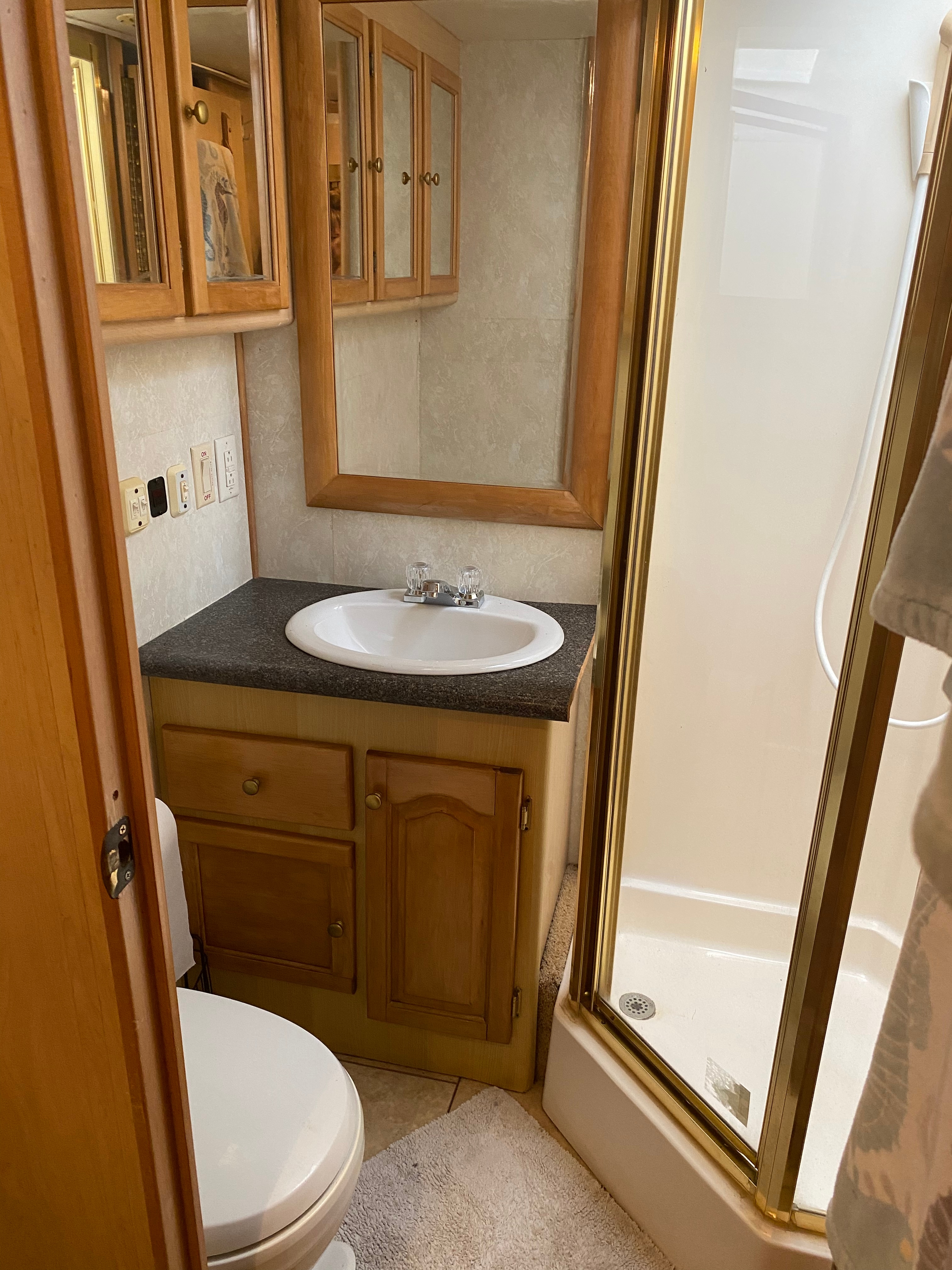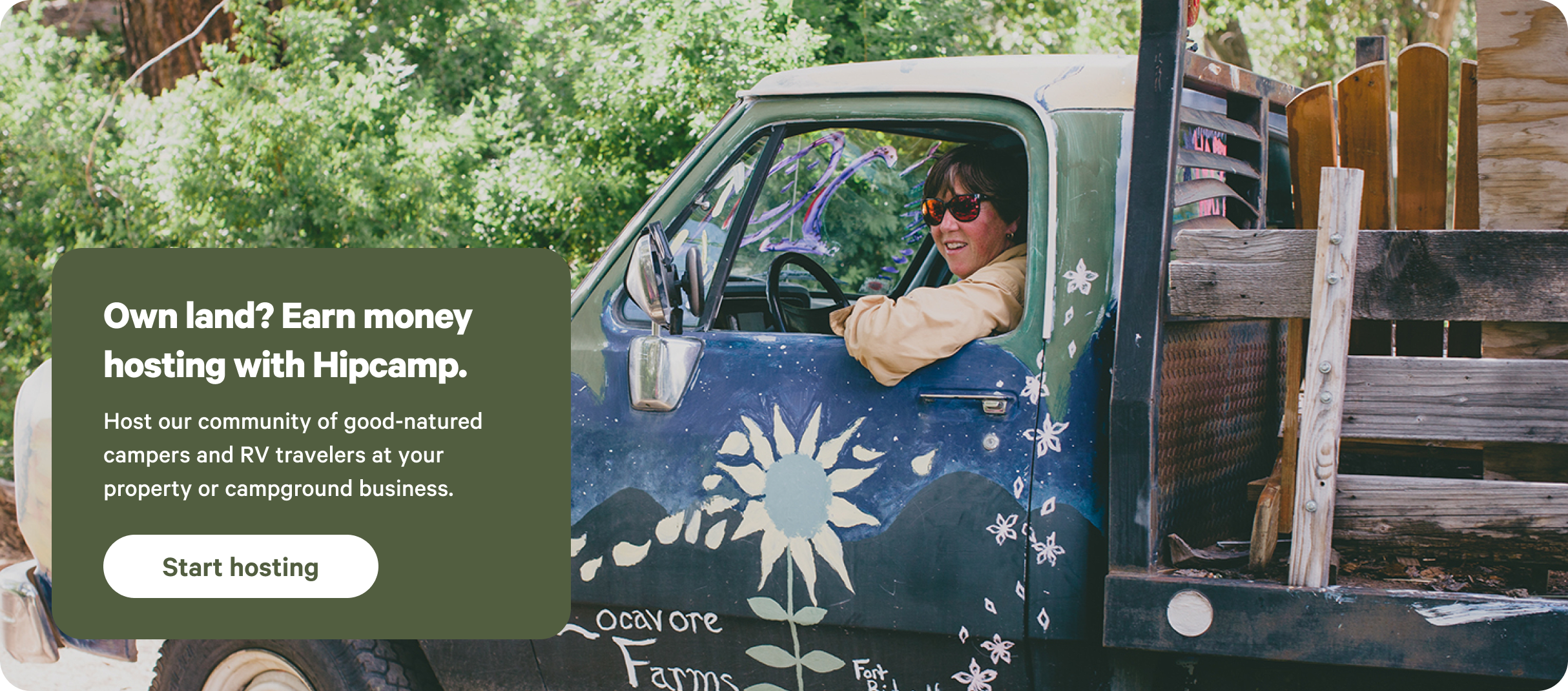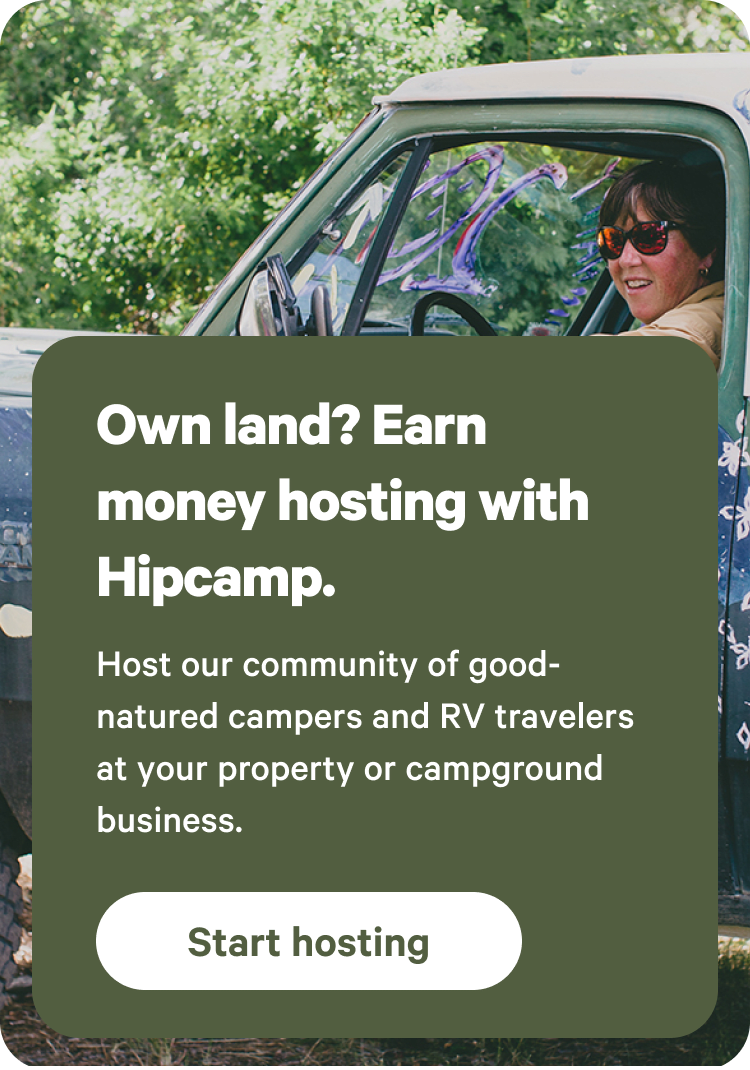99% (1K) • 60 campsites
Top-rated campgrounds near Fort Walton Beach
99% (1K) • 60 campsites
Top-rated campgrounds near Fort Walton Beach
Recent reviews from the Hipcamp community
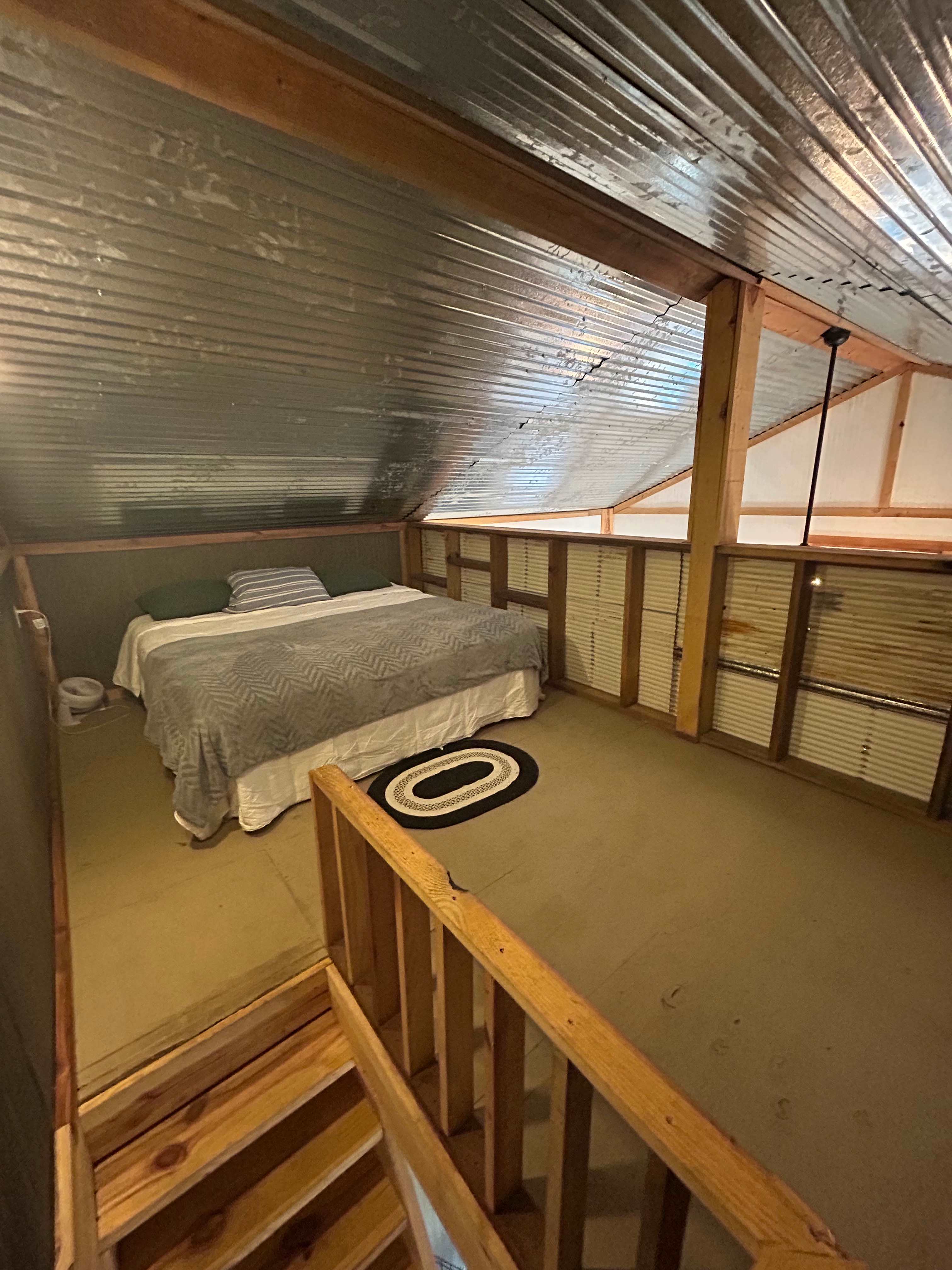
M
Miles
1 week ago
With pets
Cute little cabin! No cell service, but enough to get texts/emails if you walk up the driveway. Plenary of area to walk around and explore. Was perfect for having my dog with me.
See more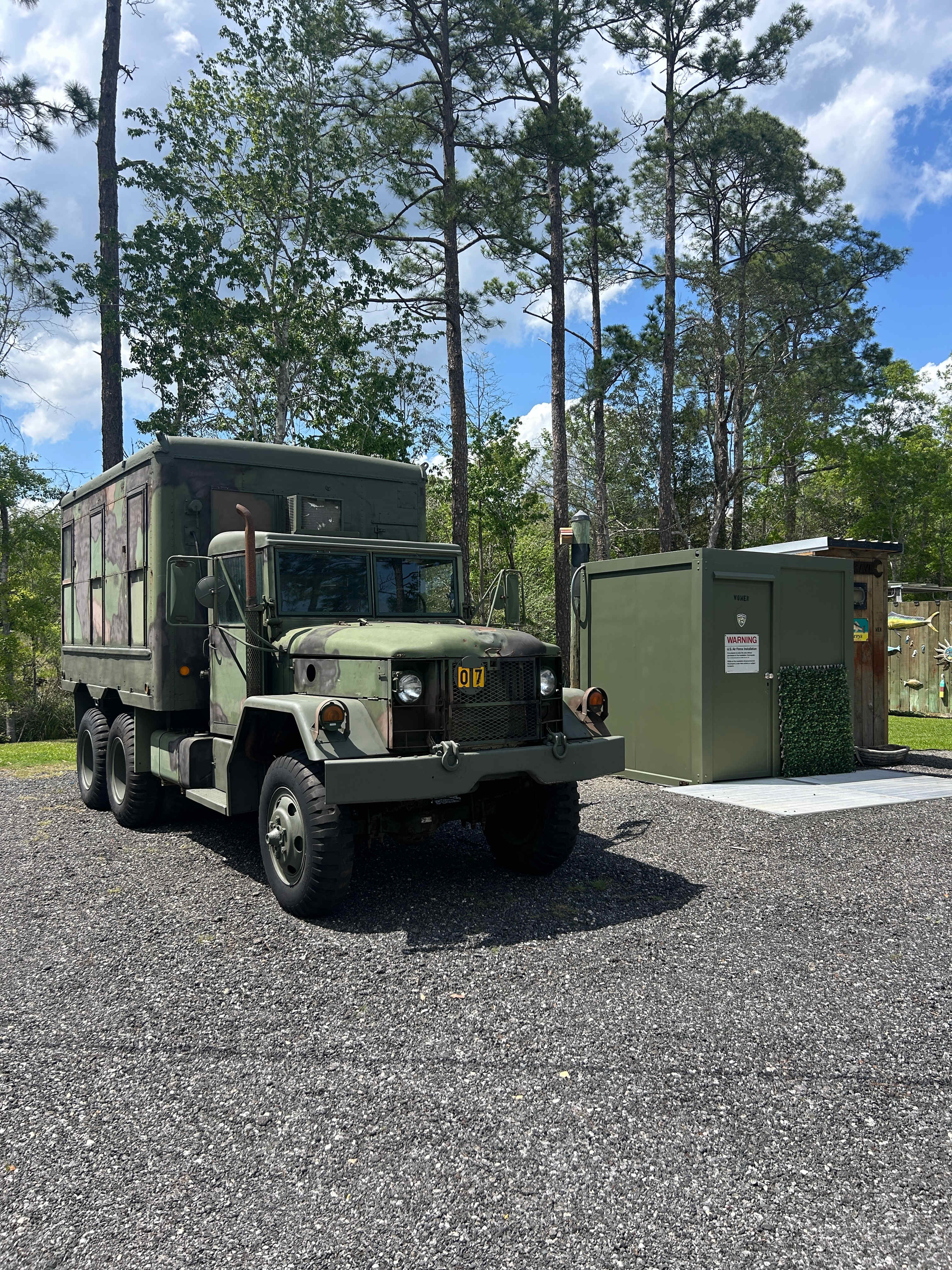
J
Joseph
3 weeks ago
With kids
My stay at FOB pelican was an awesome experience. I brought my 3 Yr old son with me. We were able to explore, cook with a camping stove, build a fire, and enjoy very courteous company from our camp site owner. This was the perfect level of adventure to get my son interested in the outdoors without any stress to me.
See more
T
Tracey
3 weeks ago
3 nights at LappinLand
It's a great place to get away from everything. Rest and relaxation been prescribed, this is the place.
See more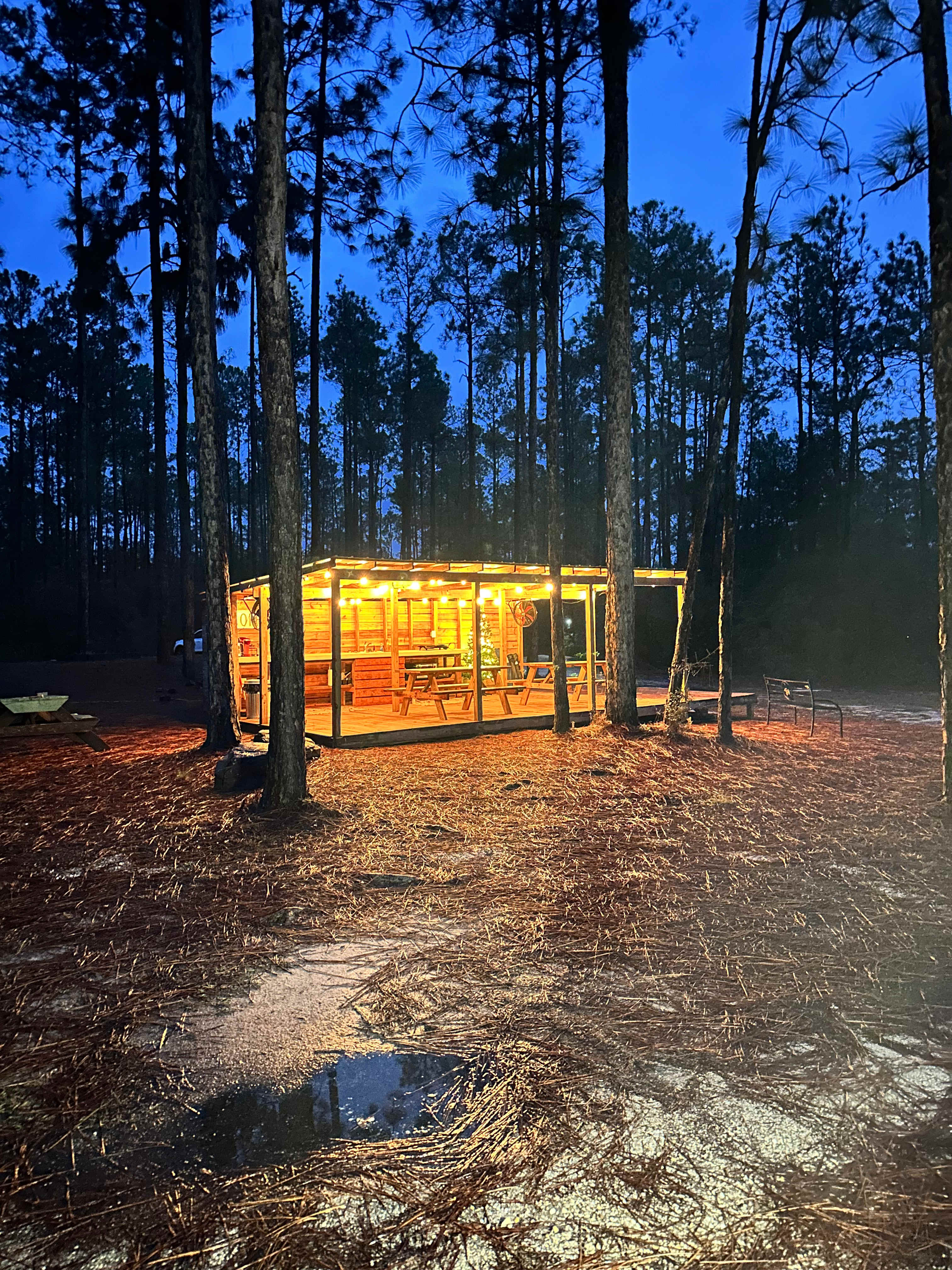
J
Jenna
December 2025
Weekend Trip to The Wandering Path
We had a wonderful time! We booked a yurt which was so nice, very spacious and the heater worked amazing - we were there for 2 nights in the cold/rain but that didn't put a damper on it at all.
Beautiful property, lots of trails and the prettiest beach right on the river that you can see from a lot of the camp sites.
Great communication from the owner!
We will definitely be back!
See more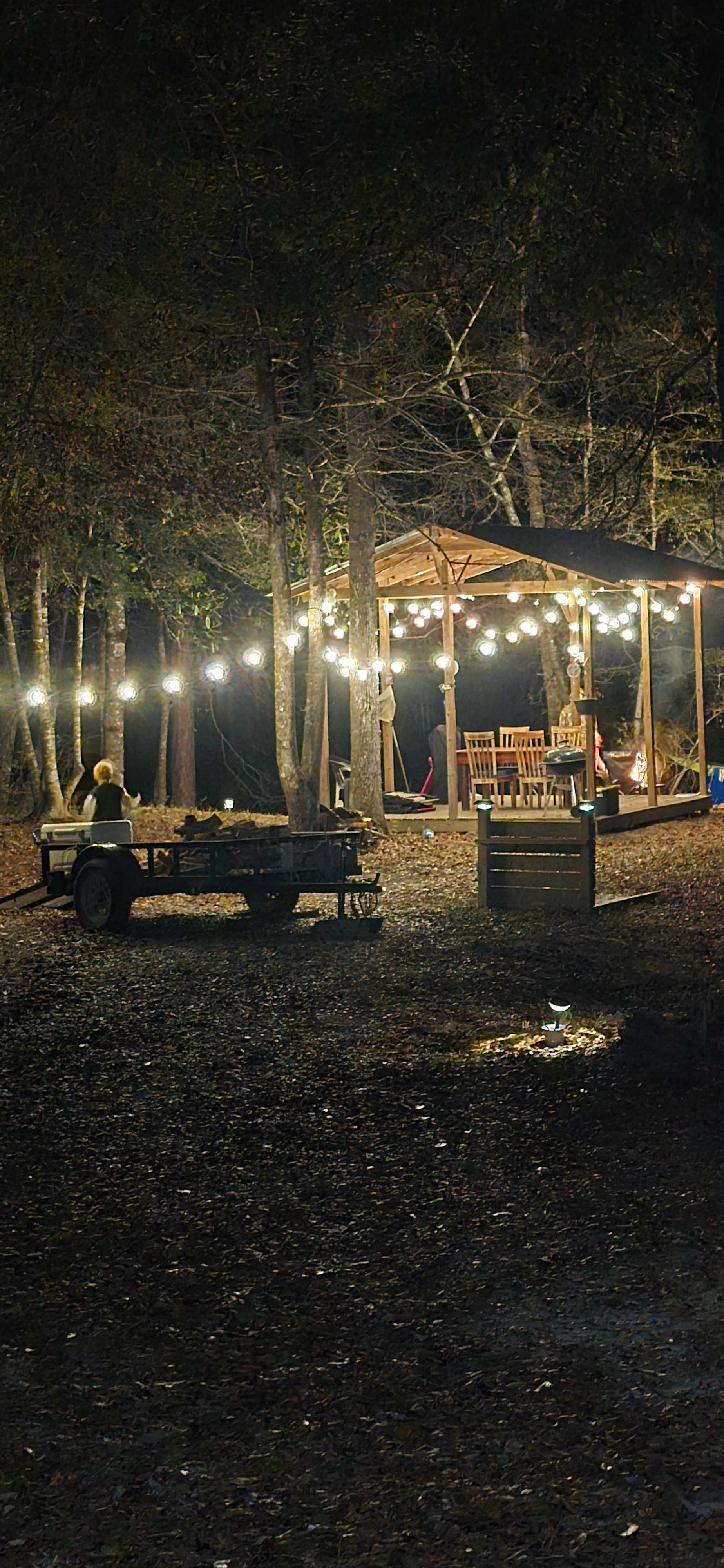
K
Kara
November 2025
With kids
It was an absolute amazing stay. Tucked away and secluded with plenty of privacy - but a total clamping experience. My kids and husband loved having the creek at our doorstep every morning. We will definitely return.
See more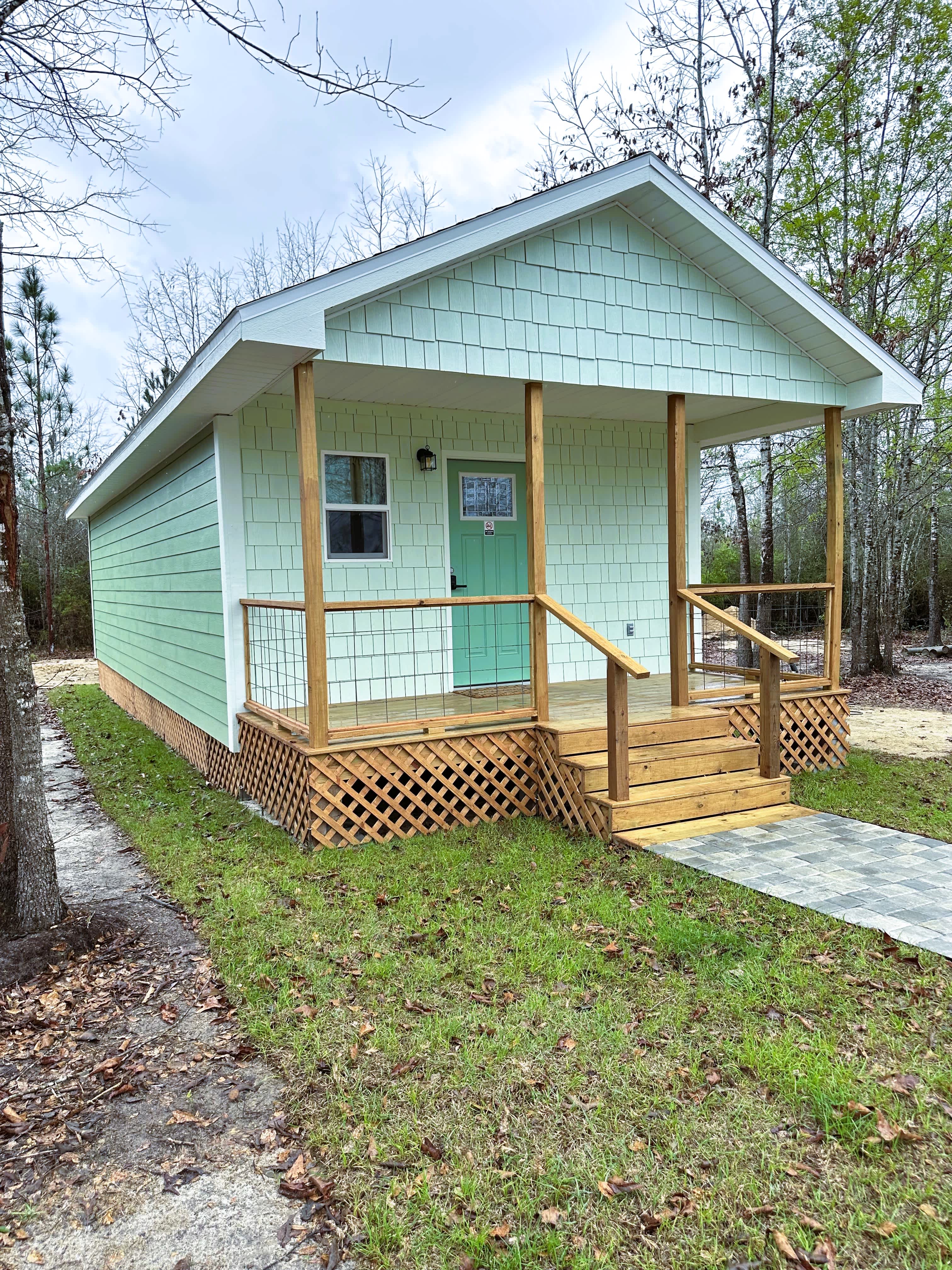
Autumn
November 2025
With pets
Amazing family, great to work with ( I messed up when booking and she helped me straighten it all up! Thank you!). Made lots of beautiful memories.
See more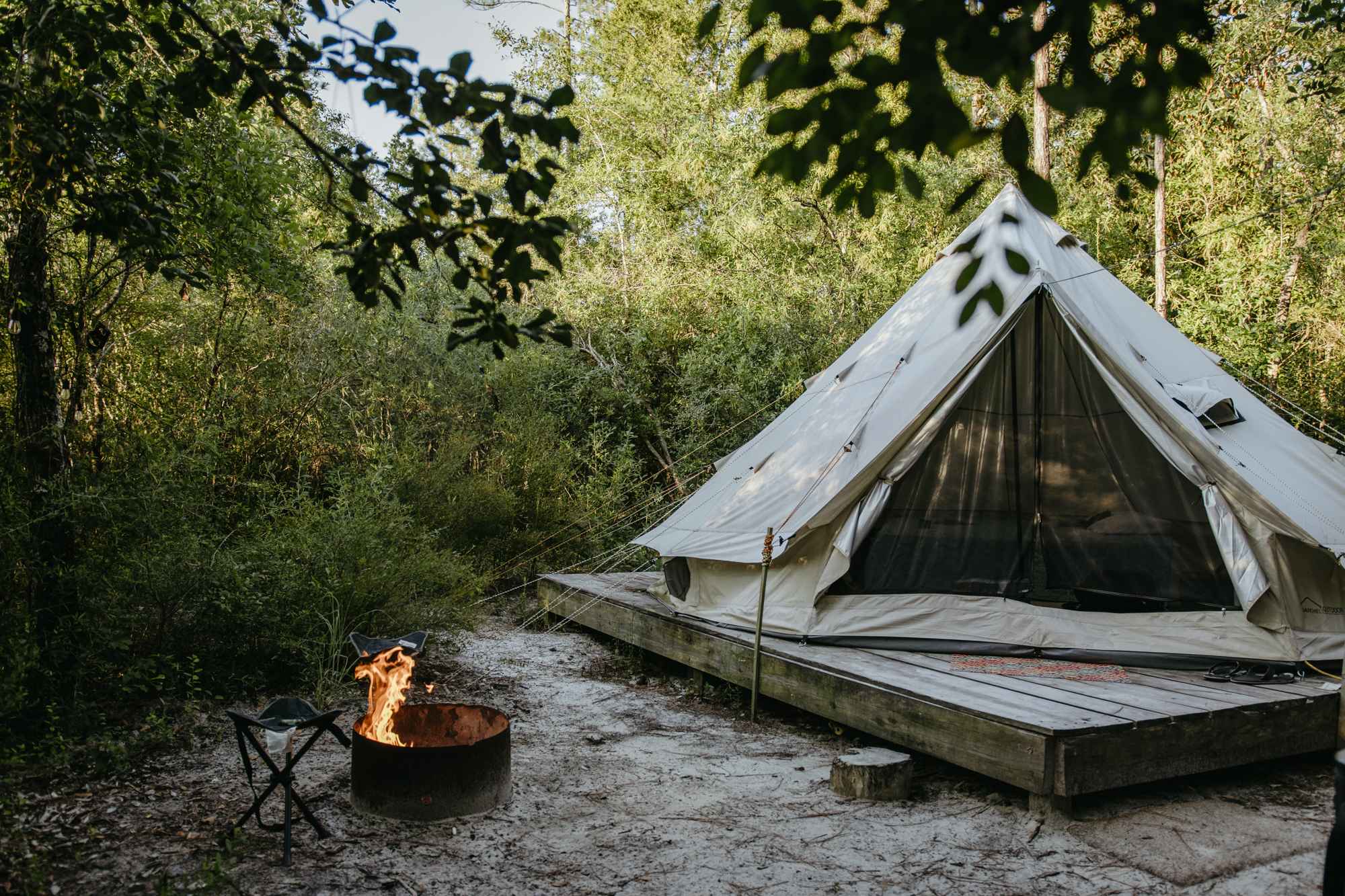
N
Natalie
November 2025
2 nights at The Wandering Path
Had a wonderful time! The place was peaceful and we loved the cooking area and bathrooms were great! The yurt was perfect and the we thoroughly enjoyed the beach and water area, as well as hiking the trail! Bella and Amanda were perfect hosts! We took a chance driving in 5 hours and will make the trip again!
See more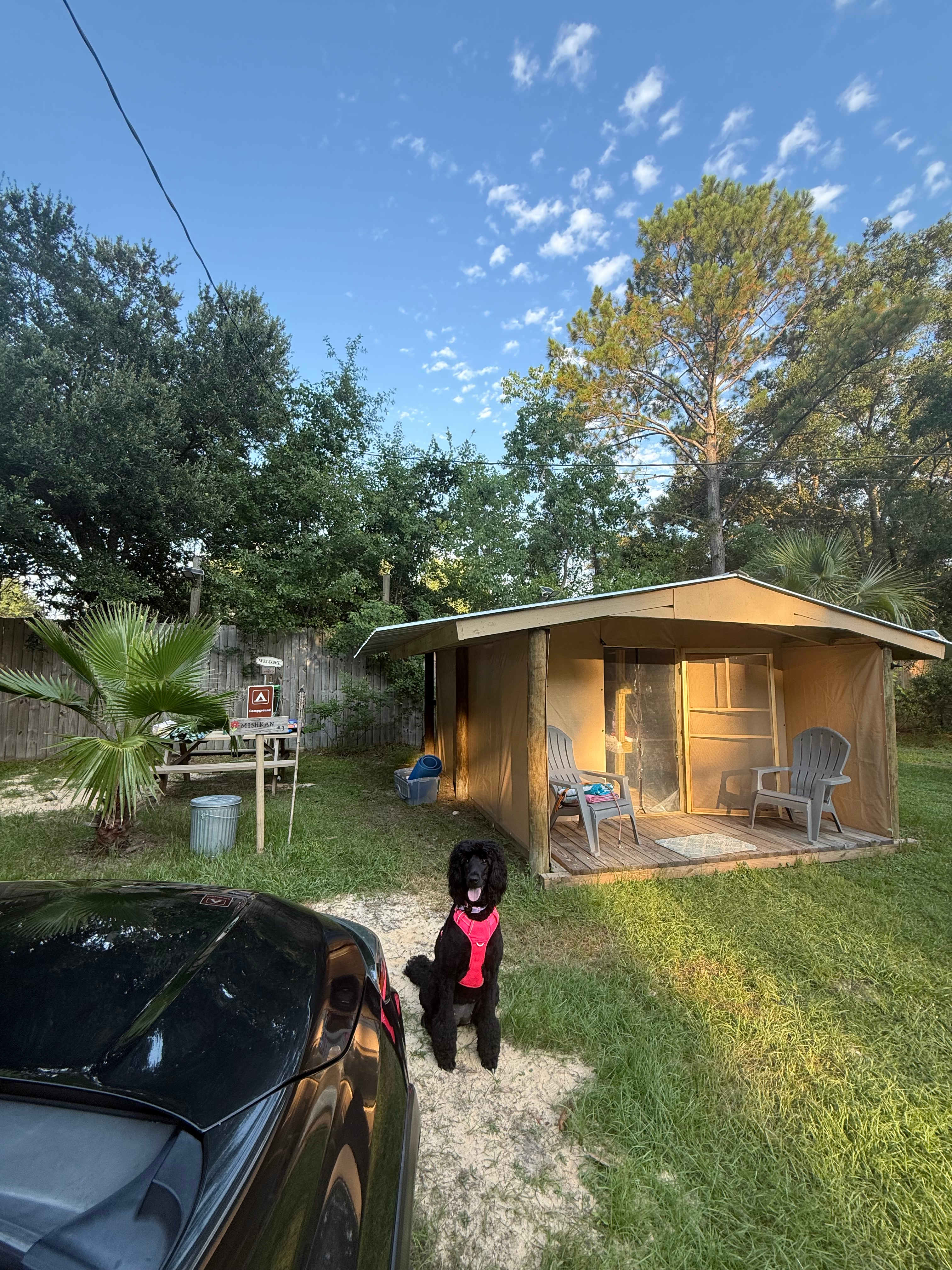
A
Adele
November 2025
Weekend Trip to Malakai 🏕 different by design
We loved this peaceful oasis in Pensacola! Joe is SO COOL and was such a gracious host to us. He was very accommodating, and even helped me with my car! This is a special site he's created with a lot of heart and love and it shows. Malachi is in fact different by design. We will totally come back. The glamping tent structure served us well and it was charming. Lots of places to explore. Thank you so much Joe you rock!!
See more
S
Scarlett
November 2025
1 night at Bay Forest Retreat
Secluded and private getaway from the norm. My fiance and I slept really hard. The host was super nice & helpful!
See more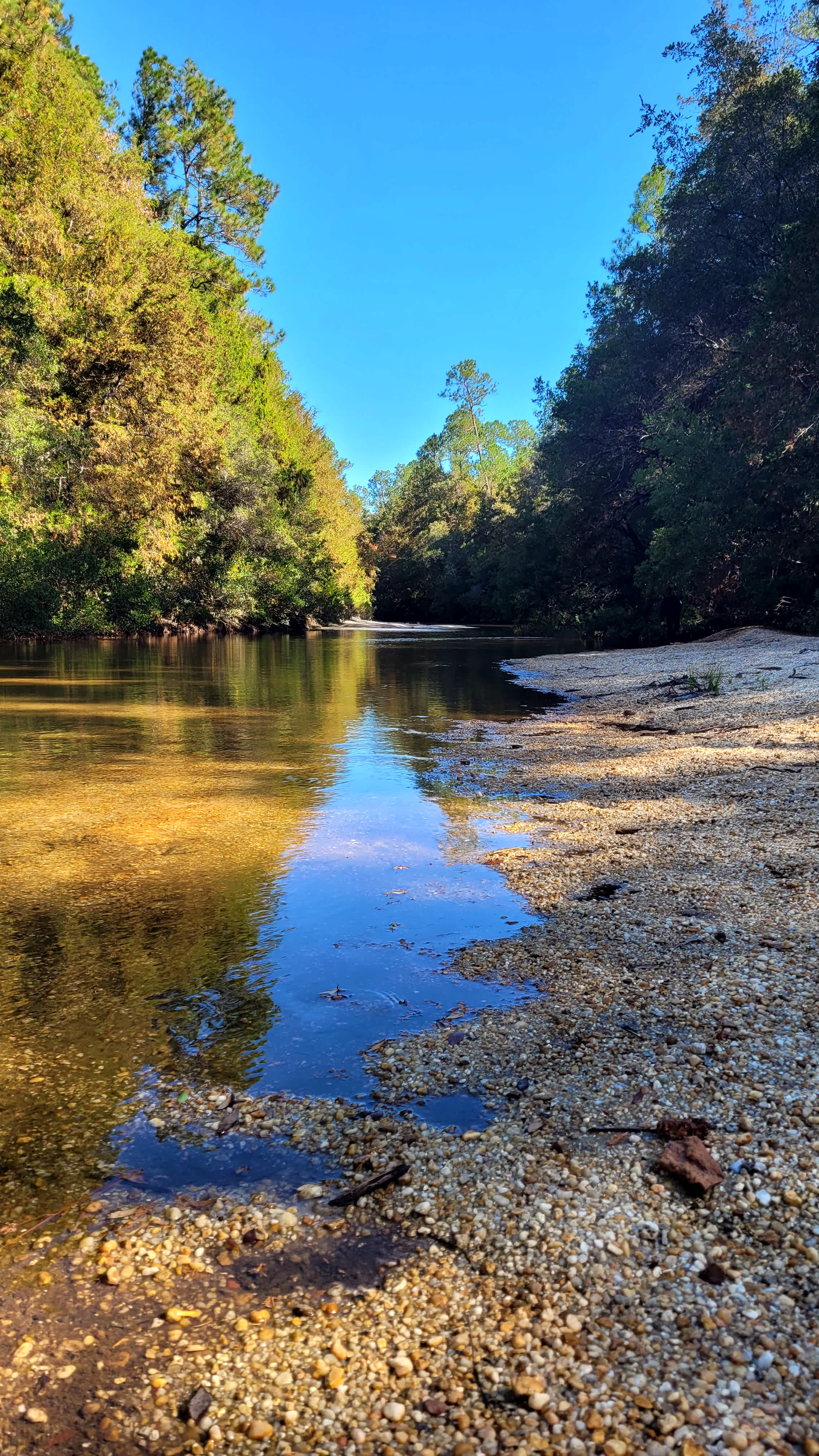
J
Jamie
November 2025
With kids
Our family rented out 2 yurts for our sons birthday and we had an amazing time! Amanda was attentive and kind (as was her sweet fur baby, Bella) Our yurt was clean and well maintained. We had everything we needed to make our "glamping" trip a success and we look forward to making more memories there soon!
See more
P
Peggy
November 2025
2 nights at The Wandering Path
Absolutely beautiful location white sand bar cold water creek steps away from camp site . Definitely will return!!!!
See more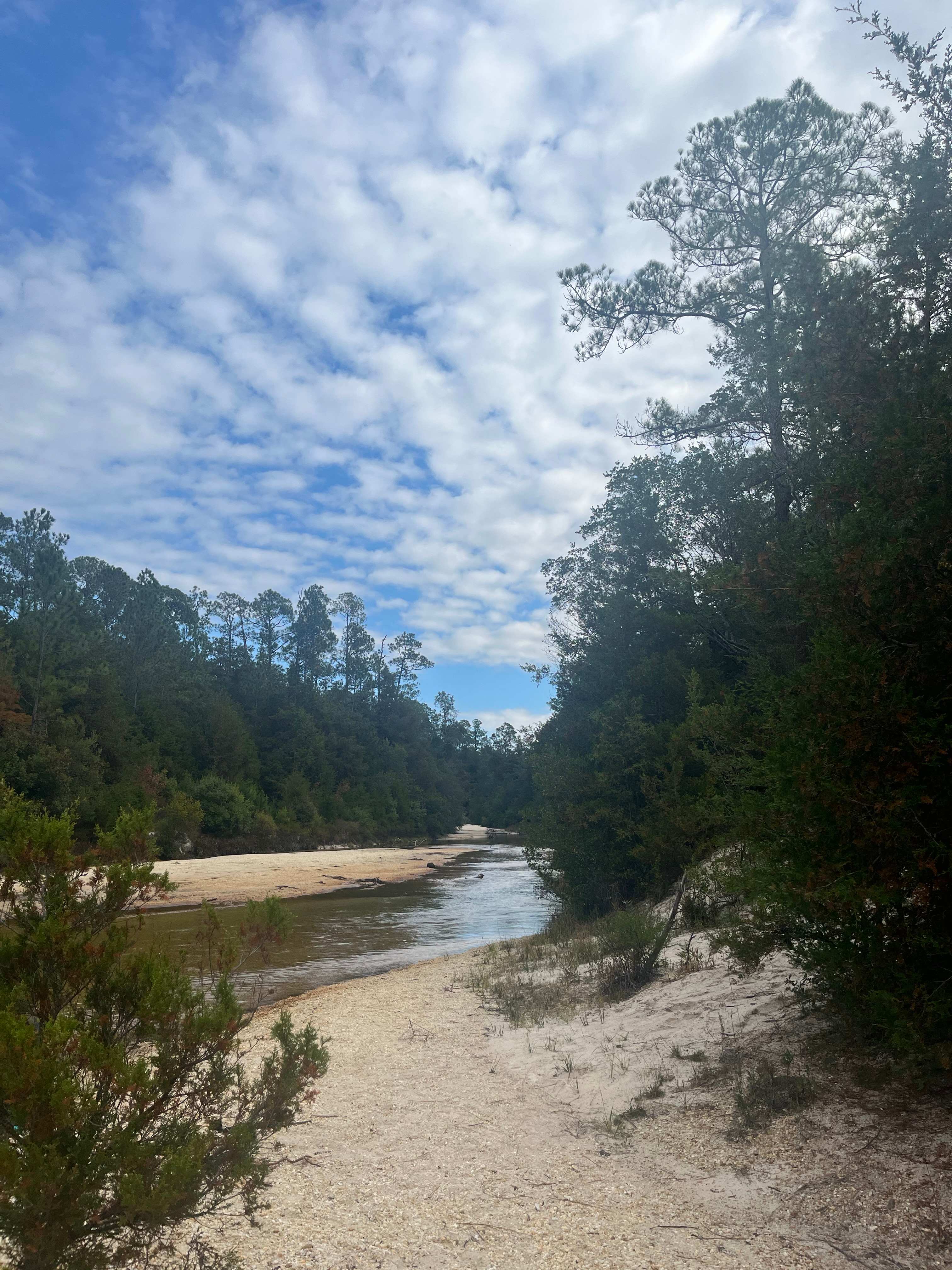
T
Trixie
November 2025
1 night at The Wandering Path
I loved the welcome and the energy. The area was clean and the space felt private but not isolated. It felt communal in the common spaces but there was plenty of room to be alone.
See more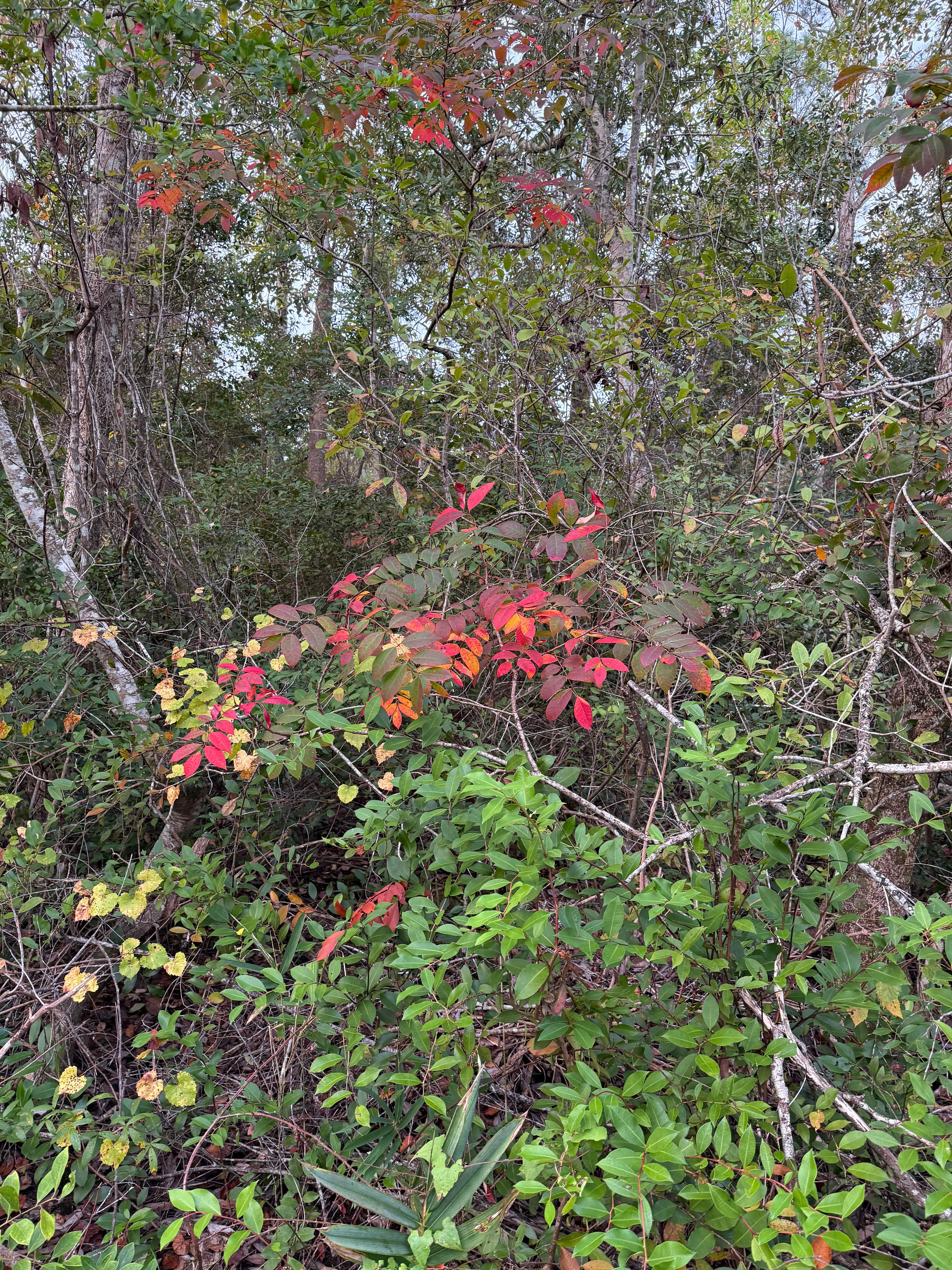
A
Amanda
November 2025
Weekend Trip to Bay Forest Retreat
I loved this hidden gem! I was traveling and decided to call it a night and this spot was perfect for me. The host was extremely helpful and led me straight to the spot in the dark. I will be back! Thank you again, Hillary!
See more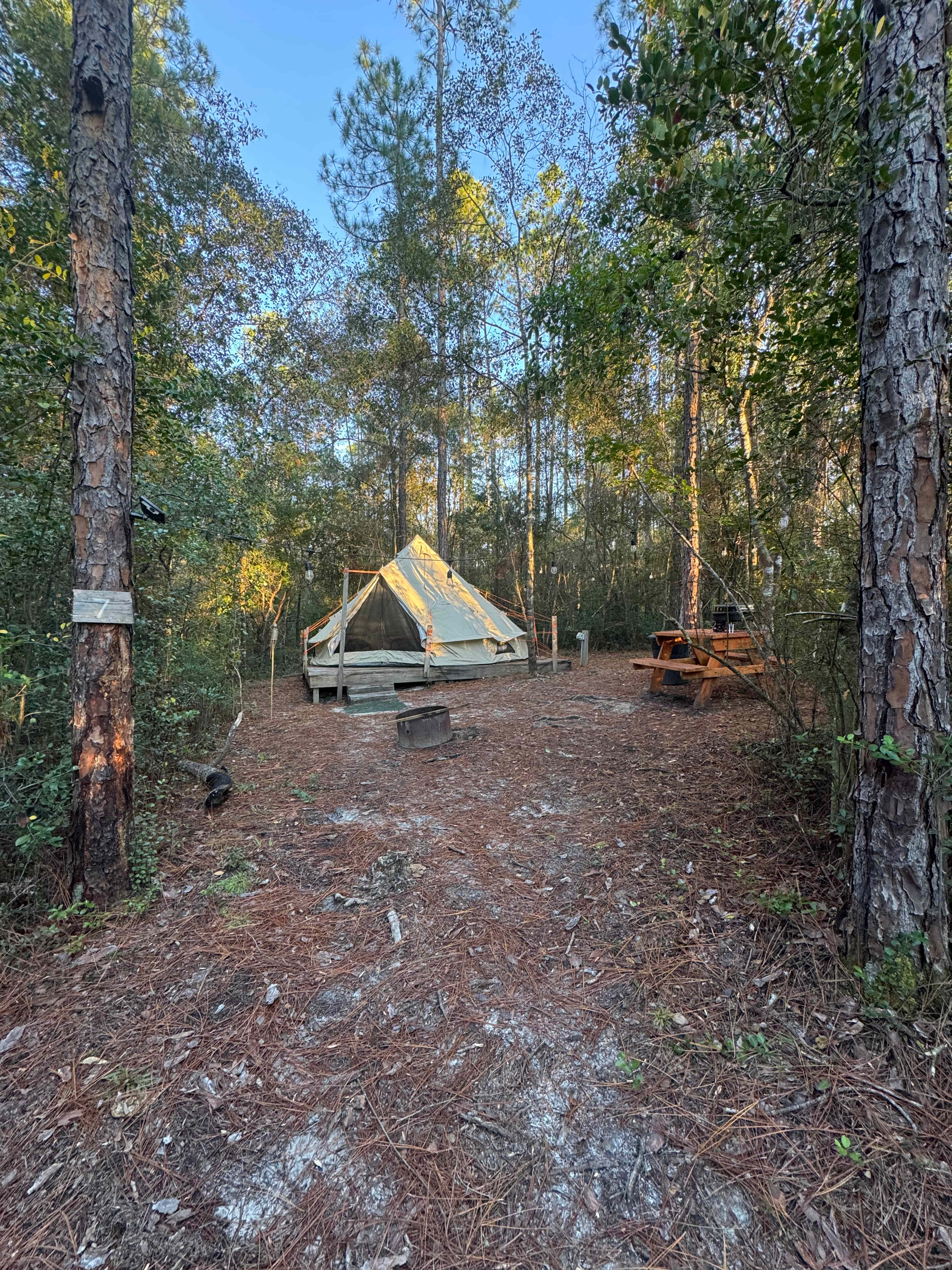
C
Claire
November 2025
Weekend Trip to The Wandering Path
We loved our experience. The yurt was clean, bed comfortable, and campsite quiet and perfect. We enjoyed walking to the sandbars and hiking the trail. The host communicated well- provided clear directions and checked in on us once we were settled in. We will definitely be back!
See more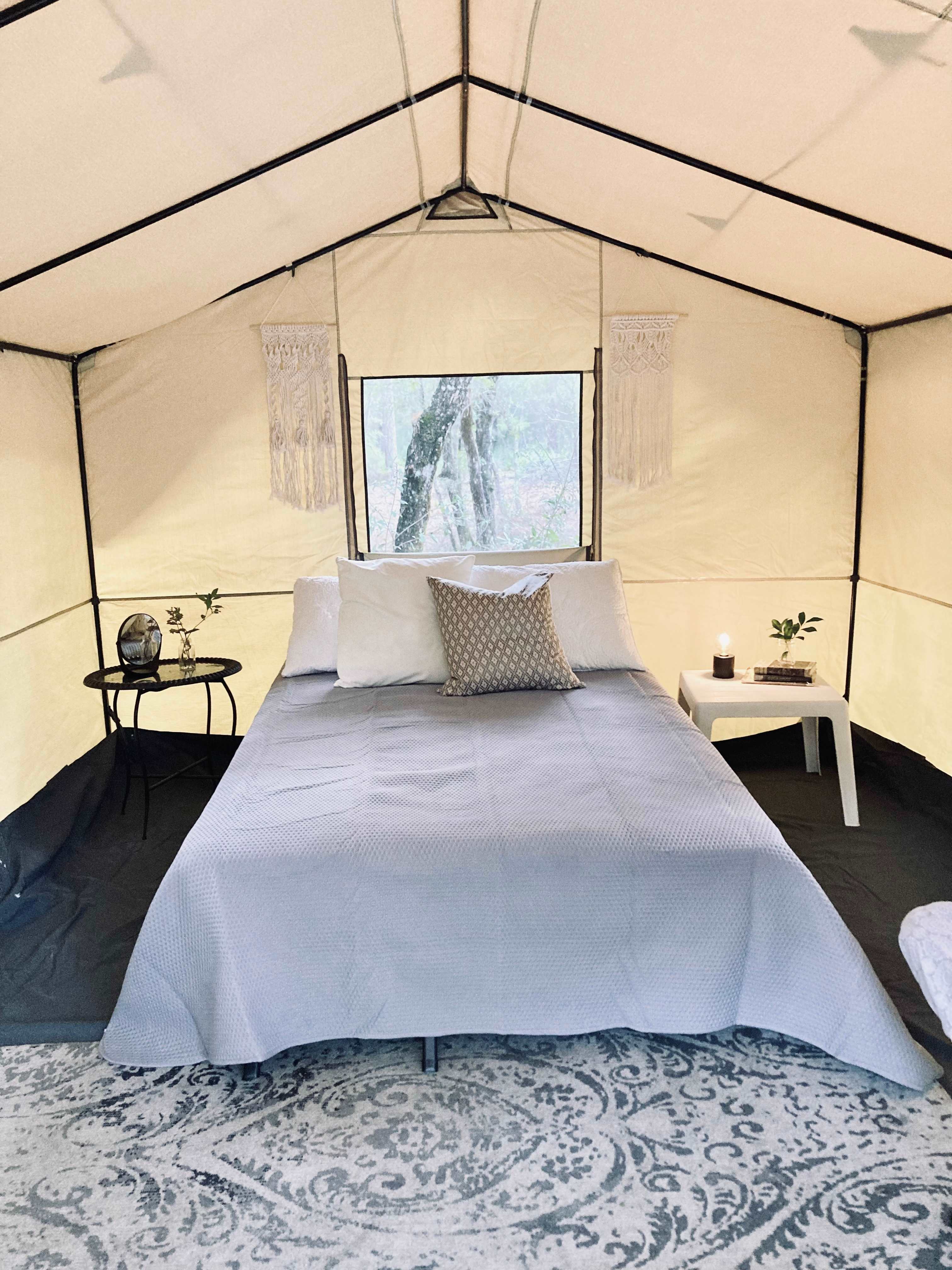
Haylee
October 2025
Weekend Trip to Bay Forest Retreat
The space was very secluded and clean. We would come again!
See more
Meg
October 2025
Weekend Trip to Malakai 🏕 different by design
As described a nice mix of technology and nature. The space is secure, simple and comfortable.
The is plenty of running water.
Property keepers are on site and friendly.
They look out for your comfort and will turn on the AC, or locate other items for you as needed.
See more
R
Rachel
October 2025
With kids
Great place to stay! It was quiet, clean, the tent smelled great which I don’t expect camping. It was just what I look for. Secluded enough to not be shoulder to shoulder but it had all the convenient amenities. We will be back!
See more
A
Amaury
October 2025
2 nights at Bay Forest Retreat
Kids loved having their own tent. The parents got Glamper 1 and the boys got Glamper 2. Great setup. We will be coming back.
See more
A
Amaury
October 2025
With kids
What a wonderful place tucked away next to the bay. Our host was very helpful and nice. 2 Adults and 3 kids stayed in both of the glamping tents. The camping experience by far was even more pleasant than we had imagined. Navarre beach and a several night at here will be something we do again. Bring your kayaks and explore the East Bay river. What a treasure!
See more
J
Joyleigh
October 2025
With pets
Joseph was attentive to our needs and made sure that we were comfortable. We had a great time at his campsite.
See more